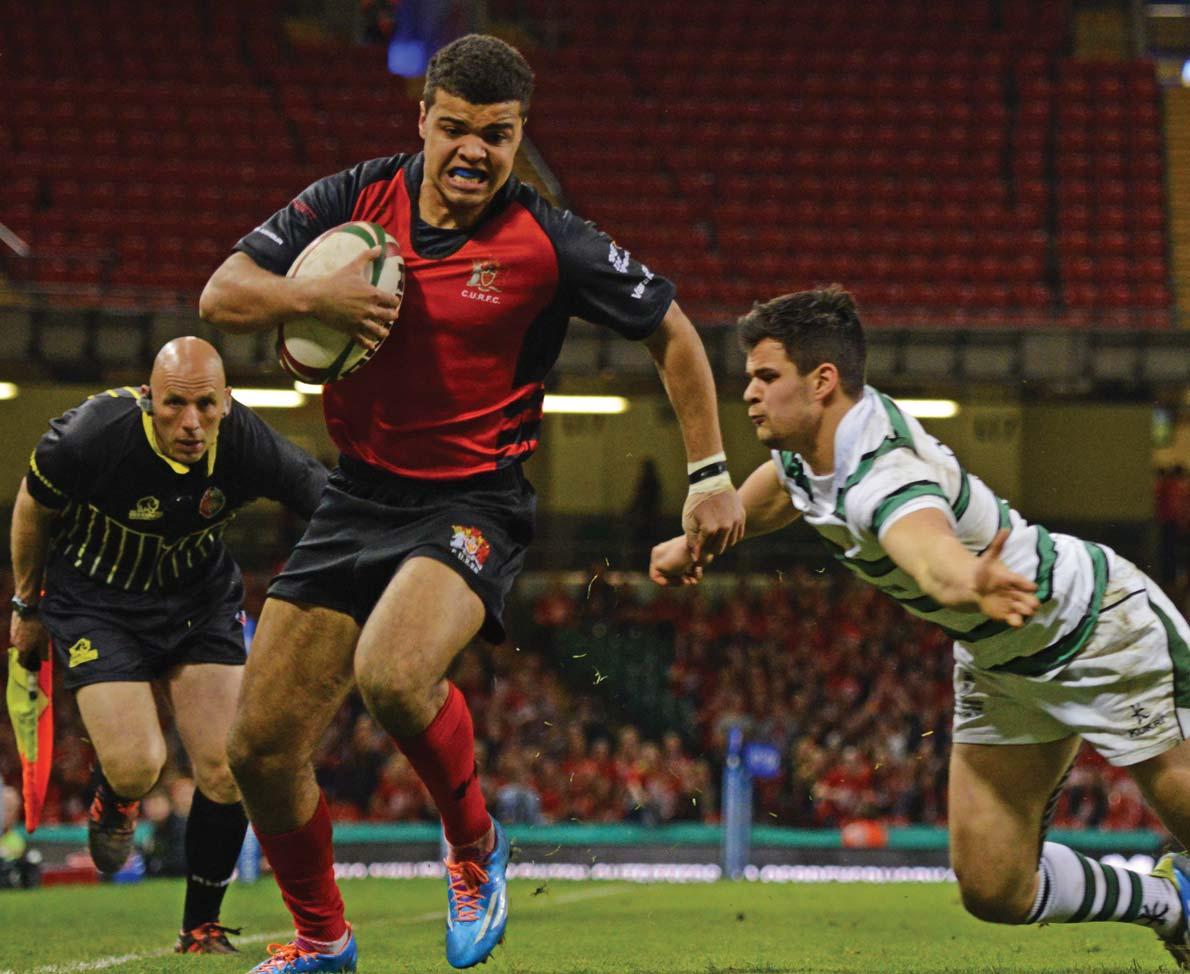






































































































































Katie Evans News Writer
University Court blocked the appointment of Griff Rhys Jones as the next Cardiff Chancellor, branding the process of selecting him a “disgrace.”
Following the controversy resulting from the Court meeting, the Cardiff-born comedian has written to the Vice-Chancellor, to withdraw himself from further consideration for the role.
Griff Rhys Jones was put forward as the candidate for the Chancellorship by University Council but needed final approval to be granted by University Court.
He would have replaced Sir Martin Evans; a Nobel prize-winning scientist and
former professor at the University, had the members of University Court given it their approval. Instead, in a confrontational and highly critical meeting, those present refused to authorise the appointment, in part due to the way University Council were not given the option of offering Sir Martin Evans a second term.
Professor James Whitely, a member of the University’s two highest decision making bodies, the Council and the Court, told the members present that he was not made aware of Sir Martin’s eligibility for another term. He therefore supported the motion to return the matter to Council, citing his belief that other Council members were most likely unaware as well.
During the Court meeting, Professor Ron Eccles implied that the University had mislead members of Council by not stating Sir Martin’s eligibility and willingness to serve a second term, as had been done for the position of Pro-Chancellor and its incumbent, Sir Donald Walters.
When the Vice-Chancellor sought approval from Court for the appointment, Professor Eccles repeated that the way in which Sir Martin Evans had been treated was “a disgrace.” The Vice-Chancellor replied by saying, “I’m not disputing that,” but that he wanted to move forward.
Continued on page 4 >>













Solus redevelopment underway page 5

Students’ Union wins Green Impact award page 6

Swansea suspend their President page 6

Cardiff gets £34 million investment for cancer research page 16



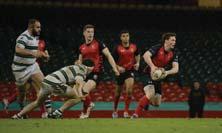

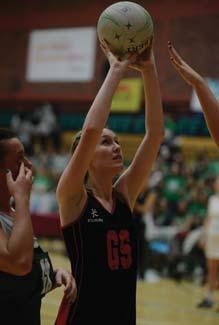
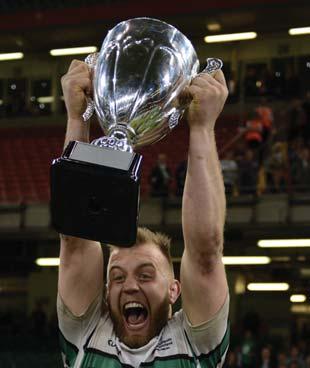

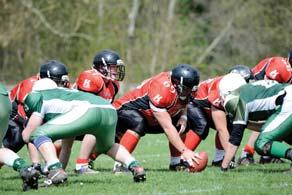


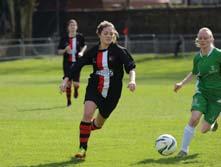
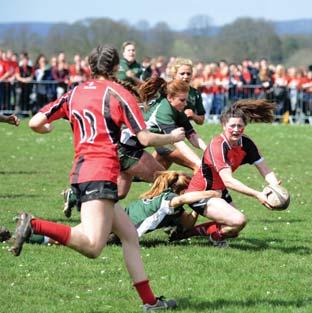
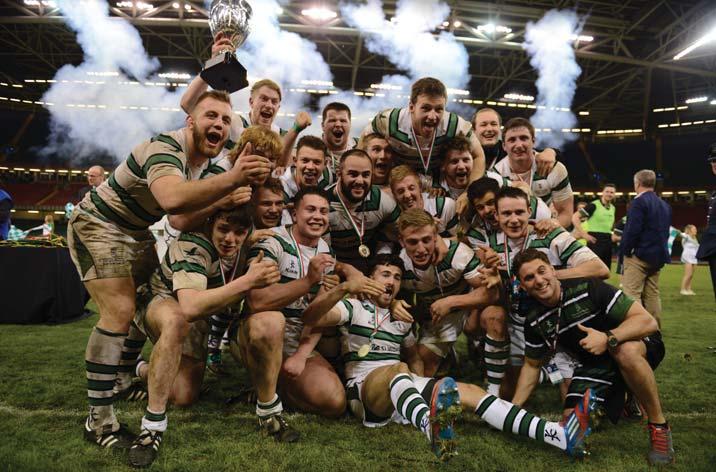




And like that, the Easter holiday is over. It went quickly, didn’t it? And for most of you, I can’t imagine it was much of a break, with deadlines and exams looming.
I have no doubt that, despite the ever-nearing deadlines, you’ve managed to find hundreds of things more worthy of your time than the small matter of essays.
I remember back to my first year, where the Easter period was a solid stretch of beautiful weather. I realise that it’s currently hard to imagine what that feels like; the dodgy pavements of Cathays splashing water up the back of my legs every morning a constant reminder that it’s still not summer. What that spell of glorious weather meant, was that we had barbecues day after day and that I then had to churn out three essays in a day.
I can’t say I regret it - I think that was the last time the sun came out in Wales - but I hope you’re not in a similar position.
Remember, the box sets and series you’ve always wanted to watch can wait until summer, as tempting as it is to choose Malcom Tucker/ Walter White/Doctor Who ahead of your dissertation.
someone’s bibliography, where they’d referenced a story I wrote in gair rhydd. There was a fleeting moment of pride which was quickly replaced with panic; I hope I don’t cause whoever it was to fail...
Although the Easter break has flown by, so much has happened since we last went to print. It’s at times like this where I realise how fortunate we are to be one of the only weekly student publications so that we can report on all that we do.
For example, the front page story about the farcical attempt at appointing a new Chancellor happened right at the start of the break. It was picked up by the national media - it is a huge story - but we have been able to reveal a great deal more, exclusive details.
It’s a hugely embarrassing saga for the University, and I can’t help but agree with one member of University Court who branded the manner in which it has been handled as a disgrace.
It certainly isn’t Griff Rhys Jones’ fault, nor is the incumbent, Sir Martin Evans to blame. The University has, quite rightly apologised, and I hope it comes to a suitable resolution when University Council come to select another candidate. If no one else is keen, I suppose I could do it.
this paper has ever produced.
There are several people that are hugely deserving of praise for making this possible. Most obviously is the team of sport editors. Dave Hooson put in a vast number of hours, as have Ross and Arthur, despite a daunting final year workload.
Another massive thank you must go to Taliesin Coombes, who took over 10,000 photos during the day, many of which have gone into this issue.
I’m sure you’ll agree that the results are spectacular and that the 11 pages of coverage pays a worthy tribute to all those involved in the year’s sporting showcase.
Another showcase that happened since we last made a paper was the National Student Television Awards. A large group of us attended the event at Loughborough University and - excluding the fact I had that awful “L-S, L-S, L-S-U” song stuck in my head, it was a great weekend.
CUTV’s incredible achievements this year were recognised as they won the highly commended Tim Marshall Special Recognition award, so congratulations to them.
ever mentioned it. There is also a week of Union awards; with the ESLAs, Society Ball, AU Ball and the Media Awards - the latter being the most prestigious, obviously.
Rather unusually, for both myself and gair rhydd, there are some things already planned for the following issue.
Excitingly, we have an interview with Labour leader Ed Miliband, which will be great, especially in the build up to the European elections. If you can’t wait until then for a political fix, then read Gareth Evans’ column on page 13. It is one of the best pieces I have ever read in gair rhydd; I highly recommend it!
Thank you for reading. I hope you have a great week.
EDITOR
Tom Eden
CO-ORDINATOR
Elaine Morgan
SUB EDITOR
Jacob Dirnhuber
NEWS
Ashley Bebbington
Max Eshraghi
Georgia Hamer
Rowan Whittington
OPINION
Olivier van den Bent-Kelly
Gareth Evans
Beth Lyons
COLUMNIST
Gareth Evans
POLITICS
Matt Harding
SCIENCE
Scott Davies
David Mason


On the topic of dissertations, I was recently shown a picture of






This issue is the first since Varsity and is therefore crammed with the most comprehensive coverage































Looking ahead to the near future, a group of gair rhydd & Quench editors are also heading to a conference and awards. Both publications are in contention for awards, so if we are successful, you will hear all about it. If we’re not, then forget I
SPORT
David Hooson
Ross Martinovic
Arthur Russell
































here's still time to write for gair rhydd before the end of the year. We have three contributor meetings left, where any student can turn up and volunteer to write stories and articles or pitch their own ideas.























VARSITY PHOTOGRAPHER
Taliesin Coombes
The meetings, for the rest of the year, will be held in the Aneurin Bevan Union from 5pm.















If you're fed up with revision and fancy a break, or are free from work, then come along!










e are currently recruiting for some editor positions for next year. If you are interested in helping to choose what we publish, editing stories and designing the paper, then we would love for you to apply.

For over 40 years and well over 1000 issues, gair rhydd has been the eyes, ears and voice of Cardiff









Monday 5th May



5pm Anuerin Bevan (Room 4J)




CONTRIBUTORS
Rory Benson





Harry Thompson
Monday 12th May


5pm Anuerin Bevan (Room 4J)

Monday 19th May

Joe Paley



University students.











5pm Anuerin Bevan (Room 4J)




It's one of the best student papers in the country, and that's down to the incredible effort of all our volunteers. Being involved is undoubtedly one of the best experiences you can have during your time at uni.




















We welcome everyone to be involved, whatever your course, age or experience.

For more information, please head to CardiffStudentMedia.co.uk/apply



Joe

Chair of Council, John Jeans, expressed concerns that not appointing Griff Rhys Jones would be an embarrassing outcome for all involved. However, when put to a vote, it became apparent that this opinion was in the minority, despite both Mr Jeans and the ViceChancellor voting for it. With most members abstaining, the motion to send the matter back to Council for reconsideration was easily passed. When it was clear that the Court would not approve the appointment of Mr Jones as Chancellor, the Vice-Chancellor threw his fist into his lap.
During the discussion Sir Martin left the room so that his presence would not impair the debate. Upon his return to his seat next to the Vice-Chancellor, Professor Riordan markedly turned his body away from Sir Martin and made no eye contact.
One member of Court told gair rhydd that the hostility between the two men at this moment was “very clear and very awkward.”
Professor Brian J Ford went on to make a closing remark that University Court has historically been seen as a rubber-stamping body but that, after this meeting, everyone will remember that the “Court does have teeth.”
Following the controversy surrounding his near-appointment, Mr Jones wrote to the Vice-Chancellor to assure him that whilst he was ‘honoured to be chosen’ for the role, he also acknowledges that his presence ‘only makes this a more complicated process for everyone
University Court has historically been seen as a rubber-stamping body but that, after this meeting, everyone will remember that the “Court does have teeth.”
Professor Brian J Ford
concerned.’
Having withdrawn his bid for the Chancellorship, Mr Jones added that ‘I feel that any further association would only be the subject of dispute and that would not be good for the Council or the Court or the University.’
On April 10th, a mere hour before the official ceremony to appoint him as Chancellor was due to take place, Mr Jones was notified that the University Court had refused to issue its approval, blocking his appointment in protest over the poor handling of the situation.
Two days earlier, and despite not having been ratified by Court, the University prematurely released images of Mr Jones dressed in the Chancellor’s cap and gown to the press.
Professor Ford has since hinted at the insensitivity of the University in publicising Mr Jones as Sir Martin’s intended replacement before the end of his tenure as Chancellor this summer.
In a letter addressed to the Vice-Chancellor, Professor Ford expressed his anger over the debacle, accusing the University of unduly replacing Sir Martin Evans and describing the lack of formal proceedings as ‘inadmissible conduct.’
He then goes on to describe the handling of the new appointment as ‘grossly embarrassing’, arguing that if the appointment of Mr Jones had been dealt with correctly, the Court may have voted in his favour, but that his appointment
no longer seemed appropriate.
He added that whoever was responsible in predetermining the matter is ‘unfit to remain in office.’
A University spokesperson apologised for the handling of the issue, adding that it was ‘very sorry for creating the circumstances that led Griff Rhys Jones to step aside. These events were based solely on internal rules and procedures: our ongoing friendship with Griff Rhys Jones was never in question.’
In his monthly email to staff, the Vice-Chancellor has since acknowledged that ‘April has been a difficult month for the University’, adding that the Chancellorship issue ‘is not yet fully resolved.’
He then goes on to praise how Mr Jones has ‘conducted himself throughout with exceptional dignity, understanding and grace in the face of extremely tiring circumstances.’
The question that remains is who will next don the Chancellor’s cap and gown? A University spokesperson confirmed that, despite the debacle, Sir Martin Evans has indicated his interest in being re-considered for another term.
Council will next convene to consider the Chancellor appointment on May 19th, with a Court meeting scheduled to follow in due course to consider the Council’s Chancellor nomination.
Griff Rhys Jones’ letter to the Vice-Chancellor:
Dear Vice Chancellor,
Following the recent decision of the Court of Cardiff University to refer the appointment of a new Chancellor back to the Council, I can see that going to need a period of reconsideration and re-evaluation. It may well be that the Council wants to re-offer the post to the incumbent, Sir Martin Evans. Sir Martin may decide to take it or step aside. I feel, however, that my presence only makes this a more complicated process for everyone concerned.
I have no wish to cause any further complication. I believe it better that I should withdraw. I can’t say I am
offering my resignation. I haven’t yet been appointed. But I do not want to be further considered for this post. I was honoured to be chosen. As I said, I felt it would be a my predecessors. But at the moment I feel that any further association and that would not be good for the Council or the Court or the University. I hope, thatn in the future, I can continue to help Cardiff University and if I can be of further service do not hesitate to get in touch.
With all best wishes, Griff
Sarah Lee News Writer
The University and College Union (UCU) have agreed to postpone the planned marking boycott following an offer to increase next year’s salary by two per cent.
As part of an ongoing dispute over a pay offer of one per cent for the current academic year, the boycott – due to start on the 28th of April - has been postponed to the 6th of May to allow for a ballot of members.
With a series of strikes held since October, UCU members believe that the recent offer for the 2014-2015 academic year is a tactic to resolve the ongoing dispute following last year’s pay offer of one per cent.
UCU general secretary Sally Hunt states: “Following this offer,
UCU has decided to ballot members on their views. It is only right that they make the ultimate decision about what happens next.”
According to the Universities and Colleges Employers Association, which negotiates pay on behalf of higher education institutions, its “full and final pay offer” is “substantial” and exceeds the current rate of inflation as measured by the consumer price index.
The prime aim of the increasd is to ‘bring the vast majority of staff in the sector on the lowest points of the pay scale to rates equivalent to or above the Living Wage.’ This being £7.65 (or £8.80 in London.)
However, it has been added that many universities have, in fact, already paid in excess of the Living Wage – providing generous sickness, holiday and pension benefits
that have not been included in the overall sum of the Living Wage calculations.
A lecturer at Cardiff University (also a member of the UCU) who wishes to remain anonymous,
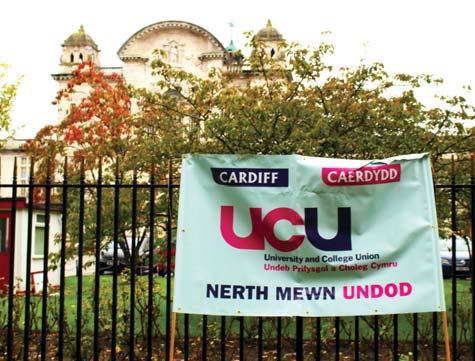
stated: ‘we are grateful for the offer and the recognition our striking has received. But, we must consider carefully the real value of the offer being made.
‘Indeed, it is everybody’s wish to conclude this year’s negotiations successfully and to draw a line under last year’s dispute once and for all.’
In reality, however, the two per cent increase may not be enough to satisfy unions, who claim a series of below-inflation offers have resulted in a 13 per cent pay cut in real terms since 2009.
Employers state that the offer is ‘at the limits of affordability’, yet the ‘valued and hardworking staff deserve to be rewarded.’
It has been concluded that only five per cent of staff took part in the strike action in October which has led to subsequent actions from employers.
Jacob Dirnhuber News Writer
The controversial redevelopment of the Students’ Union’s second floor is well underway, according to CUSU’s Director of Operations, Ben Eagle.
Speaking to gair rhydd, Mr Eagle reassured students that the redeveloped nightclub will be up and running in time for freshers’ week. “Everything is on track for a freshers opening. Currently the demolition has taken place, the existing roof has been removed and the new balcony level is starting to be built.”
“We hope to have the shell of the venue complete by mid June, at which point a specialist nightclub contractor will arrive to fit the venue out.”
In order to minimise the redevelopment’s impact on exams, construction will stop while exams are taking place in the Great Hall, and
all construction staff on site will move to an evening shift to minimise disruption to students.
Some students are actually expected to benefit from the £3m project; a group of architecture undergraduates were commissioned to provide their input, and as a result, parts of the design “have changed completely”, according to Paul Edwards, the SU operations manager.
“The students have had an impact, yes”, Mr Edwards told gair rhydd. “The original ideas for the new circle bar and the kitchen have changed completely following their suggestions”.
What hasn’t changed is the centerpiece of the design, a vast skylight that spans the dancefloor and is expected to flood the room with natural light during the daytime.
“The University are funding this project, so anything that makes is more attractive to students is a priority for them” said Edwards.
“The existing space isn’t fully utilised during the day, and the
nightclub is looking a bit dated.”
“The idea is to create a space similar to the third floor lounge in terms of ethos and aesthetics for students to use in the daytime, which can be quickly converted into a nightclub.”
“We’re also increasing the number of bars, starting a major overhaul of the ventilation systems in
the nightclub and creating a balcony space overlooking Senghenydd Road.”
The task of demolishing and renovating the existing space is being undertaken by CJ Construction, a Port Talbot-based building company that, despite having not worked with the Students’ Union before, partook in the award-win-
ning redevelopment of the South Wales Miners Museum in Afan Forest Park.
The builders have faced one unforseen complication in the form of water damage following the removal of a section of roof, but the damage is relatively minor and is not expected to significantly delay construction.

Max Eshraghi News Editor
Hundreds of delegates from universities across the country gathered at the NUS National Conference to vote on official NUS policy for the coming year and to elect new senior union officials.
The conference took place from April 8th to 11th in Liverpool and saw the re-election of incumbant NUS president Toni Pearce.
Pearce was re-elected in what is being described as a landslide victory with 62% of the votes. Pearce had already served one term in role and was notably the first NUS president not to have been to university. A standing ovation met the announcement of her re-election and she took to the podium to declare her intentions for the coming year.
Leading the organisation in the lead up to the 2015 general election, Pearce also pledged to campaign for a “new deal for the next generation”, putting pressure on politicians to improve opportunities for students. She said: “We’re going to focus on the run-up to the election and think about how we register students to vote.
“I want to create more jobs and tackle unpaid internships, as well as build communities. I also want to do more to encourage women in leadership.”
She went on to say: “Never let anyone tell you that we’re not already a fighting, campaigning, winning movement.”
She went on to remind delegates of campaign wins ranging from scrapped tuition fees for apprentices, to saving £350 million of the student opportunity fund, Pearce argued that change is more impor-
tant than ever before in the year of a general election.
She shared her vision for “a student movement that’s more representative than we’ve ever been. A student movement that listens, that campaigns from the classroom to the boardroom – on the streets and in your communities.”
Also elected to full time officer roles at the conference were Megan Dunn, Joe Vinson and Raechel Mattey to the roles of Vice Presidents for Higher Education, Further Education and Union Development respectively. Colum McGuire was also elected as VP Welfare while Piers Telemacque was voted VP Society and Citizenship.
The first day of the conference saw motions opposing all fees associated with exam resits and the privatisation of student loans.
A motion to oppose the political party UKIP attracted the most controversy. Daniel Cooper, speaking in favour of the motion, said, “We should be alarmed by the rise of UKIP, a party that represents the worst of UK society; racism, xenophobia and a narrow minded approach that could cut us off from Europe. UKIP voters are looking for answers, but UKIP have no answers. Immigration is not the cause of job losses and lower wages. Business and politicians are. Let us tell UKIP that their politics are not welcome in our movement.”
However, members of the party went on to criticise the decision.
Jack Duffin, chairman of UKIP’s youth wing, Youth Independence, and one of the four NUS presidential candidates, said, “I am very disappointed that NUS has voted to oppose UKIP on a national level
at its conference.
“This will alienate many students who are involved in UKIP but also people who hold a different view to the handful of students at NUS Conference.
“This shows their disregard for democracy and disdain for al-
‘‘
We should be alarmed by the rise of UKIP, a party that represents the worst of UK society; racism, xenophobia and a narrow minded approach that could cut us off from Europe. UKIP voters are looking for answers, but UKIP have no answers... Let us tell UKIP that their politics are not welcome in our movement.
Daniel Cooper
ternative, mainstream political views. We as a movement do not believe NUS should not be marginalising thousands of students and societies across their campuses. This is bizarre, pathetic posturing once again demonstrates how the NUS lacks focus on the issue that students really care about: education.”
Motions in favour of setting up a legal fund to support arrested student protesters and for controls on police on campuses were also passed.
The latter motion sparked debate over the #copsoffcampus campaign, which advocates a system similar to that in other countries, whereby police require the permission of both student unions and university management before they can enter a university campus. Daniel Cooper, Vice President of the University of London Union, said, “In many countries it’s taken for granted that police do not walk onto campus whenever they like. NUS should campaign for laws that police cannot come onto campus without permission. In the last year in the majority of cases police have not acted in students’ interest, they have made students’ life more difficult.”
But some conference attendees questioned the motion, arguing that “police shouldn’t have to go through the student union every time they want to go on campus”, going on to point out that victims of harassment in need of police support may not want to go through their Students’ Union.
There was further controversy over a proposal for a national demonstration, with critics pointing out the lack of clarity over the aims of such a protest. A delegate from Liverpool said, “I love
a demo, but the proposers of this amendment don’t care what this demo is for. It’s a demo for demo’s sake.” The motion failed by 285 votes to 341.
In the wake of University and College Union strikes over pay disparities among staff, the conference passed a motion supporting a 5:1 pay ratio for all university staff, whereby the highest-paid employees could not be given a salary more than five times higher than that of the lowest-paid employees.
Hundreds of students and delegates travelled from across the country for the event and many say they enjoyed the lively atmosphere and discussion.
Alex Turner, a student at the University of Nottingham, said: “It’s day two and I’m shattered. It’s been fun but I’ve barely slept. Everyone has been so friendly and it’s good to meet so many likeminded people.”
Mina Ell, a student at Petra College, has been in fancy dress for the conference, dressing as Harry Potter and as Robin Hood to raise money for the charity Mind. She said: “It’s my first time here and it’s been really fun because I’m in costume and people keep coming up to me to give me a hug and to donate.”
In the final session of the Conference, delegates passed an emergency motion which resolved to support the return of teenager Yashika Bageerathi to the UK to finish her education. The student was at the centre of a highly publicised campaign to prevent her deportation before her studies were finished in the UK and the NUS resolved to support her school in fundraising for her return and completion of her studies.
Max Eshraghi News Editor
Swansea University have suspended their Students’ Union President Zahid Raja.
A statement released on April 10th from the University says that: ‘The trustee board has taken a decision to suspend the president pending the outcome of an investigation.
‘The suspension in this case is not a disciplinary act – it is a neutral act designed to protect him, and any complainant until the investigation has been completed.’
It goes on to add that they have advised the President not to communicate with students unless authorised to do so. The suspension comes in the wake of a student petition which called for a vote of no confidence in Mr Raja.
After serving a year as Education Officer, Mr Raja was elected in March 2013 after a landslide win with 77% of the vote. This made him Swansea University’s first black president in over two decades.
Raja had been the subject of a story in Aberystwyth Student Media in March that claimed the Swansea Students’ Union President was caught in an expenses scandal and that he was ‘under investigation.’ It claimed that Raja had falsely claimed expenses on a trip to London.
Raja defended himself from criticism by saying: “Much like in any other Students’ Union of our size, the President doesn’t seek permission to go to conferences [or] take students where if their interest is furthered, it benefits the student body. If this were the case, more than half of my time at work would be spent in red tape. I would question what political motivations lie beneath ‘the Union’ now quizzing this single trip ahead of a FTO election where the candidate in question is not an incumbent. It smacks of double standards.”
It is not clear whether the offical investigation is related to this incident and is ongoing.

Max Eshraghi News Editor
Maintenance staff at the University of Wales Trinity St David have successfully claimed around £500,000 in compensation from their employers after suing for sex discrimination.
The 23 male staff members claimed they were paid less than their female co-workers in equivalent positions for seven years, with each employee being underpaid, on average, by £4000 a year since 1st August 2007. As a result they were seeking more than £30,000 each in back payments, as well as future wage increases that would keep their pay equal to female colleagues in the same job.
During a hearing, which was held in Cardiff on Tuesday April 29th, the University’s legal team said that they would no longer be contesting the claim and agreed to pay out to the claimants and five more men on the same pay grade.
The University had initially argued that the pay difference was due to changes to the men’s contracts not because of gender.
However, Peter Wallington QC, representing the University, said: “In light of the evidence that was agreed this morning, I have taken some further instructions from the respondents who concede the [claims of] equal pay was well founded.”
Paul Doran, the men’s solicitor, said he expected his clients to share a £500,000 payout, “as there are a few matters such as interest and the right to an award for ‘injury to feelings’ that have been revised in the last couple of days.”
He welcomed the University’s decision to drop the case. “I’m absolutely delighted for my clients …
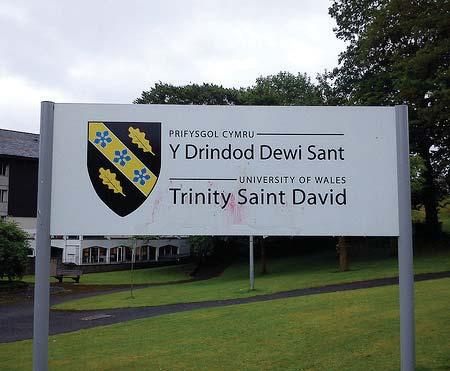
While it is disappointing that they were required to take it all the way to tribunal to get such an admission, the acknowledgment that they were right all along will be just as enjoyable as the compensation that they will receive.”
The £500,000 payout is less than the £736,000 the men were initially expecting. However, Rob Cooze, 50, a tradesman from Swansea, said he and his colleagues were elated. “With all due respect to our new employers, Trinity St David, this is completely new to them and is a historical issue. I just hope it hasn’t soured any relations between us,” he said.
The group of co-workers are believed to be the biggest group in Britain claiming sex discrimination. All were originally employed by Swansea Metropolitan University, which merged with the University of Wales Trinity St David in August last year.
A University spokesman said: ‘We came to the view that the original claim presented by staff to the former Swansea Metropolitan University had due merit and, as a result, an appropriate remedy should be agreed and actioned.
‘The employment tribunal related to events that occurred more than seven years ago at the now dissolved higher education corporation Swansea Metropolitan University and several years before its merger with the University of Wales Trinity Saint David, which took place in 2013.
‘The University of Wales Trinity Saint David had no involvement in the decisions that were made by Swansea Metropolitan University in 2007. This was a complex case and we are very disappointed the new University now has to deal with, in an appropriate manner and with due care, the consequences of historical decisions.’
Rowan Whittington News Editor
Cardiff University Students’ Union has continued its commitment to a sustainable future and environmental issues, and has been recognised as a Gold standard Union by the NUS Green Impact Award.
By completing specific tasks in a workbook provided by the NUS Green Impact programme, Cardiff have shown a strong commitment to student-led action. The workbook offers a framework for staff and students to improve the ethical and environmental credentials of their union and is a good starting point for all University Student Unions.
As a Gold Standard Students’ Union, Cardiff have been recog-
nised for not only following basic energy saving tips, but for using initiative and going beyond what is expected. The University participates in regular initiatives to reduce energy waste such as the annual ‘Switch Off’ campaign in residences, a ‘Snap It Off’ project encouraging students to report unnecessary lighting, which they won this year, and annual Union led sustainability week in November. This year’s sustainability week saw free bike maintenance workshops and a debate chaired by Griff Rhys Jones. The University is also an accredited member of the International Environmental Management Standard.
Cardiff University’s own Green Impact Awards encouraged staff and students to submit energysaving ideas which may be imple-
mented within the University. The best idea will also be awarded £100 and the winner will be announced this month.
Helen Dent, VP Welfare has said that she would like to “give a huge thank you to all our staff and students who have been involved with sustainability and community projects” and that it is “great to be recognised for our efforts”.
Following a full environmental audit, Cardiff was rewarded the Gold Award and Dom Anderson NUS Vice President (Society and Citizenship) has commented that “This has been the biggest year yet and I’ve been so inspired to see the continued dedication to driving student-led environmental action this year, and so proud of what unions like Cardiff have achieved.”

Rowan Whittington News Editor
A women’s only gym hour has been approved for the Cardiff Medical Centre Sports and Social Club on the Heath Park campus. The session is open to all female students and not just those studying at the Heath Park.
This decision increases pressure on the University gyms to follow suit, as there has been clear support for this move for some time, but Cardiff University Sport have so far made no progress towards implementing a similar scheme.
A petition at the beginning of the 2013 academic year called for women’s only slots which led the VP Heath Park, Gemma Wheeler, to lobby both the CMC Sports and Social Club and the University Sports facilities teams who both rejected the idea.
After further call from a consultation in the IV lounge at the Heath and mention of women’s only gym sessions within a motion brought forward by Taslima Alam (Black and Ethnic Minorities Of-
ficer 2014-2015) at the AMM which called for a more Muslim-friendly union and more accessible facilities the centre at the Heath have now agreed to run these sessions.
The first sessions will take place this week. Wheeler has said of the result that it is “such a good example of how we, at the Students’ Union, can represent the people we were mandated to, and who present us with problems which can later result in positive change!”.
She has also stated that she hopes that the sessions will be replicated in the Cardiff University Sports facilities in order to make the Students’ Union more Muslim friendly in line with the new policy approved at this year’s AMM.
VP Sport & AU President, Edore Evuarherhe, talking about why the University has been slow to address the desire for Women’s only gym times, said, “They are sending round a survey to gague students’ interest as well as conducting equality impact assessments. I’d hope for positive results from these and that we get women’s only sessions in our gyms.”
James Griffiths News Writer
Nazareth House Nursery has been finding glass bottles in their nursery gardens, the likes of which
We have had many problems in the past with alcohol bottles being found in the Nursery garden and it is usually around this time of year when it becomes more frequent.
pose a very serious risk to the children who play there during the day.
Recently a broken vodka bottle (pictured) was found in their side garden after having been thrown over the wall. This resulted in part of the garden being closed off until it was deemed safe to re-open.
The nursery is situated on the corner of Colum Road and North Road, with some children who attend being less than two years old.
Misty Ardouin, the nursery manager, has said in an email that: ‘We have had many problems in the past with alcohol bottles being found in the Nursery garden and it is usually around this time of year it starts to become more frequent.’
She went on to highlight how the issue has impacted the daily routine of the nursery. ‘Each morning we have to do a sweep of our outside grounds to check for things like this. There were also bits of glass found in the same area [as the bottle] which, as I’m sure you can imagine, are very hard to find in grass.’














































Misty Ardouin Nazareth House Nursery Manager

































































































Ardouin did acknowledge that the problem may not be due to the actions of students, and that any member of the public could be responsible. However as the nursery is based in an area populated heavily by students, Nazareth House have said that they would be grateful if those who pass by on a night out do not throw bottles over the wall onto their property.














Monday 5th May




5pm Anuerin Bevan (Room 4J)
















Monday 12th May







5pm Anuerin Bevan (Room 4J)
Monday 19th May

5pm Anuerin Bevan (Room 4J)
































































7



4




















Babatunde Valentine Onabajo Opinion Editor
It’s a question with as seemingly an obvious answer as whether a triangle has three sides or if all bachelors are male, but that has not prevented controversy from brewing over the Prime Minister’s assertion that Britain is a “Christian country.” So does the claim itself have any merit?
Consider this: Britain is the only country in the world to reserve a space for bishops in its legislature. This is reflected in the second and upper house of the UK Parliament known as the ‘House of Lords,’ with the first and lower being the House of Commons. The House of Lords reviews and amends bills (‘draft laws’) that are passed on from the House of Commons. The House of Lords is made up of 834 seats, 26 of which are reserved for bishops from the Church of England in what is known as the ‘Lords Spiritual.’
Consider something else: That the sitting of each Parliament begins with a prayer. In the House of Commons, the Speaker’s Chaplain (the incumbent being Reverend Rose Hudson-Wilkin) invokes the name of God, petitioning that all sitting members pursue the common good of the nation and not lead the nation wrongly through ‘love of power, desire to please or unworthy ideals.’ A similar gesture occurs in the House of Lords. This practice entered into common practice just under 450 years ago and has persisted ever since.
Consider one final thing: That the Queen is a religious figure. She is the Supreme Governor of the Church of England, and her Coronation Oath required that she promises to preserve the ‘worship, discipline and government’ of the established church.
These are just the facts. They all invariably point to Britain being
a Christian country. To deny that there is some truth in the Prime Minister’s comments is to stick one’s fingers in their ears.
It is impossible to penetrate into the beauty and depth of British history without understanding the history and theology of Christianity. Britain is teeming with artefacts and symbols of Christianity. Monuments, statues and medieval parishes all reflect the Christian foundation upon which Britain was built. Take a walk around Cardiff and what do you see? Besides Bute Park are the remains of Blackfriars Priory. Tiger Tiger is located on a street named Greyfriars Road.’This street is so named because the Franciscan Order of Preachers had a site there and were distinguished by their grey cloaks.
Yet we should not accept the Prime Minister’s comments brusquely: There has been a great loss of faith in Christianity. That this question is even being asked at all is indicative of that. Britain’s Christian past should not prompt us into the complacency. There are many people in Britain today who do not know the Lord’s Prayer. Now more than ever an enormous responsibility has been placed on the most devout of Christians to help impart the faith and to win back what was once known as the ‘Dowry of Mary.’
The year 2014 will be an important juncture in our nation’s history.
On the one hand it has been called the “Year of the Bible” because of the number of movies being released with allusions to biblical epics such as Noah.
On the other hand there is the New Atheist movement with an insatiable thirst for the soul of this country to its alien paradigm. I hope that this article shows why Britain is fundamentally a Christian country and why a revival of faith is needed to stay true to our religious and cultural heritage.
‘
‘
To deny that there is some truth in the Prime Minister’s comments is to stick one’s their ears
‘‘
The last time I went to a Church serthe Museum’ had just come out in the cinema
James Smith Opinion Writer
Recently David Cameron claimed that the UK is a Christian country “and we should not be afraid to say so”. However, the last time I went to a church service Night at the Museum had just come out in the cinema, A Moment Like This by Leona Lewis was number one in the charts and the word ‘iPhone’ did not exist. My life certainly does not reflect someone living in a Christian country and what’s more, I am really glad that’s the case.
Firstly, I am not the only one to be a tad annoyed by Cameron’s views on ordinary British people’s lives. A group of 55 leading public figures, including authors Terry Pratchett and Phillip Pullman all publicly spoke out against the Prime Minister’s view on everyday British life. I believe that like me they were offended by the Prime Minister speaking on their behalf, particularly on an area as sensitive as their beliefs.
The UK has changed; we are a diverse group of individuals whose own religious views should not be overwritten by a politician, acting like a pushy parent who keeps signing us up for tennis lessons.
Moreover, to claim the UK is a Christian country is disrespectful to all the other beliefs that British people have. Over 2 million of us are Muslim, whilst 800,000 are Hindus and in the 2001 census 0.7% of the respondents declared they were Jedi. I personally am a member of the ‘Church of Whiskeyanity’ and usually pray for the return of the Lash.
Additionally 16% of the population claim they belong to no religion at all. Without question the UK is a pluralistic nation with many different faiths and views forming its makeup. This is something to be proud of as it shows how far the UK
has advanced over the past century. Also Christianity does not affect modern British politics and Cameron is wrong when he views the Bible as essential to British life. To see this we only need look at the debate over same-sex marriage. Had the Church of England and the Catholic Church got their way the UK would have continued to consent to the discriminatory view that gay people do not have the same rights as straight people. Thankfully the British public took that opportunity to choose equality over out-dated tradition, with polls frequently showing they supported the law change. Thus it’s clear that political decisions are better when they are based on the present situation and not on views that are over a millennium old.
However, I am not saying Christianity is not part of the UK. Particularly during the holidays Christian views are evidently within our society. Recently during my family ‘get together’ for Easter Sunday my Granddad announced that he had been to church in the morning. Thus despite the decline in Christianity’s role in the UK, it is obvious that it still has a role in his life, especially around holidays (though not in my Granny’s since she was furious that he ruined her lie in). Therefore it is still a factor that makes up British life, much like Boxing Day football, driving on the left or a new episode of Sherlock. However, it is neither our most defining factor nor a factor for everyone.
David Cameron’s view on British society is clearly a misunderstanding on his part. As part of our Plural society it is right that he can be a practicing Christian. However, it is wrong for him to claim that we all share similar views since the UK is such a diverse place with many different faiths. Also, his silence on the Solus renovation issue has really put me off him.
After a cynical Daily Mail article about food banks inspired an internet campaign that raised over £100,000, Opinion writer Elouise Hobbs asks, has social media become the true gauge of public opinion?
The Mail on Sunday’s attempted expose on the Trussell Trust (a food Bank Charity) showed how apparent scroungers were flouting the Trust’s ‘9 visits’ rule to stock up on food. Undercover reporters visited the banks and were given food parcels without proper ID checks. However, this article did not receive the intended response of outrage. Readers were left feeling shocked by the seemingly inhumane attitude of both the government and The Mail on Sunday’s report which seemed apathetic, condemning everyone who used the food bank as fraudsters. The story lacked promoting how the food bank had actually helped local communities and as the largest food bank charity in the country, there are countless success
stories. Furthermore, the article condemned the volunteers as incompetent, rather than caring and compassionate.
After a backlash on social media, most prominently Twitter, the Trussell’s Just Giving page now stands at over £107,000. A massive and unprecedented surge in donations over just one week mirrors the public’s reaction to the article. Social media made people more aware and made discussion of it easier online. This demonstrates how social media is more effective at reaching the general public and more reactionary to breaking and constantly changing news. This is not only a question of investigative journalism in our country but also the seemingly diminishing power of newspapers in comparison to social media. In the past, The Sun has claimed to be a major factor in contributing to who won the general elec-
tions. Leading up to election day 1992, the newspaper ran a campaign against Labour leader Neil Kinnock. The notorious headline ‘It’s The Sun Wot Won It’, appeared after the newspaper surprisingly backed the Conservatives in who consequently claimed a narrow victory. Of course, the newspapers’ affect on voters’ final choice is unclear and can never be measured exactly, but the change in opinion polls and the final result of the election cannot be ignored. However, that was over twenty years ago and before the conception of social media sites. In the 1990s The Sun circulation was consistently over 4.5 million but now only manages to tip 2 million. The readership of its physical paper has decreased by over half. The top five newspapers in the UK combined have a print and online readership of 46 million. On the other hand, Facebook, which has only been around for a decade, has over 1.2 billion members and 750 million users
log on daily. Realistically, numbers do not lie; social media is able to reach a lot more people and enables them to express their personal views.
Furthermore, it has had a great effect on conversations about politics, most notably voter turnout and participation. It has affected young people’s political awareness, as shown in the 2012 American election, where more university aged people voted than in any other election and the massive twitter campaign ‘use it or lose it’ encouraging people to vote cannot be ignored either.
There are also many other problems with newspapers. For instance what happens when the publishers of the newspapers are the people who you are fighting against? The recent uprising in the Arab Springs was mainly played out and organised through social media allowing it to become the voice of the people and enemy of the state. Furthermore, countries such as China, Syria and Iran have a partial or full block on social media sites such as Facebook and Google because they recognise the potential and power of social media. Traditional forms of media are struggling to keep up with the personal form of communication on Twitter and blog feeds. Social media has had a massive impact on how we perceive and receive news as it has made it more interactive. We no longer just read the news; we become the news and the journalists that report it. The difference between print newspapers and social media is that one can only report on news after the event whereas the other is an instant report on the news, that becomes a conversation as the true story emerges.
In some ways, social media seems to isolate us from the real world as we walk around with our eyes fixed on our technology, but in some cases, such as this one, it actually brings us closer together and makes us aware of other people’s troubles and the issues within our own society. It seems social media, still in its infancy, is emerging as the new way to voice opinions, read news and understand the world that we live in.

Matthew Hale Opinion Writer
Since 2010, Cardiff University has charged a staggering £1,472,692 in library fines. Whilst the amount actually collected stands closer to £800,000, this remains an obscene amount of money that seems to hit students far more than it benefits the University. Speaking as a disgruntled second year, I have helped more than most to swell the library coffers with my hard loaned cash. Nevertheless, this piece will be the epitome of journalistic objectivity. (For the most part).
Librarians are nice people, always happy to help whatever the issue, be it assisting the distressed disoriented fresher attempting to scale the electronic gate or sympathising with a third year who has just deleted their dissertation. They obviously don’t set out to cause students harm. The reason why the fines haven’t been collected in their entirety is because of librarians taking pity on students and taking into account extenuating circumstances or hysterical tantrums.
Library fines are undoubtedly a necessity for ensuring the smooth running of any library and enforcing considerate library etiquette. On numerous occasions I have wished Game of Thrones style torture on people who have kept books that I have reserved days past the deadline. Shame on them! Punishments are needed and by far the most effective way to keep stu-
dents in line is to hit their nearly empty pockets. Furthermore, I haven’t even mentioned yet that the only person responsible for ensuring punctual return of books is the student.
Having said this, I think the amount the Library charges is too much. Worse than this is how fines can accumulate at rapid pace, particularly when you have many books out at any one time. One day loans for example set you back a pound for everyday they are overdue. Having a few of these out simultaneously plus ordinary books can mean a hefty penalty should you take your eye off the ball for a few days. It must be said that keeping track of library book deadlines isn’t that high on the average student’s list of priorities.
Circumstances arise that make you forget all about due dates - for example, I myself have been known to be out of action for up to two days following a football social. Fines should be in place, but the severity should be considerably reduced
I also think the University should be attempting to implement a more effective reminding system. At present, an email is sent to a student’s university account, but only after they have exceeded the due date. In these days of technological wonderment it is hardly beyond feasible to develop an app that sends you ‘push notifications’ the day before a book is due. A student is far more likely to check their phone regularly than their university email account.
You could even include the capability to renew in the app itself, making the whole process far more straightforward. Alternatively, students regularly receive texts notifying them when a lecture has been cancelled, this service could simply be expanded to cover looming due dates. However call me cynical but I can’t see the University rushing to implement any system like this.
It’s not just the severity of the fines that I object to, but also what actually happens to our sorely missed money. At present, the money serves no real purpose and is swallowed up in the excitably titled ‘Information Services budget’. Ostensibly this means that our fines contribute to the every-
day administrative and operational cost of running the university.
Given the millions ploughed into redevelopment and building works across the campus it is clear that the University is not short of a bob or two. If Information Services were to no longer receive this money, I doubt it would be affected in the slightest. I have a strong suspicion that this money is just surplus cash that the University is throwing at boring procedures because they don’t really know what to do with it.
I for one would be less inclined to wake up in a cold sweat if I knew that the fines I had paid were going to something more meaningful. Perhaps a naïve suggestion but even just part of the money could
go to charity that helps underprivileged children learn to read. Some of the money could even help develop a real life ‘Rememberall’, which would be invaluable for students and also tremendous for a game of catch.
You obviously can’t have a library without fines. There would be anarchy! Barricades reminiscent of the French Revolution would be erected inside the ASSL with students desperately clinging to their overdue books. Librarians would look on in horror, helpless, with no sanctions available to facilitate the return of the books. Yet, fines are hitting students far more than is necessary and the money collected doesn’t even serve a significant purpose. A balance needs to be struck.

What would you rather be doing than essays & revision?
As the old saying goes, give a billion monkeys a billion typewriters and they won’t type a word until deadline night. For anyone wanting to see such a sight visit the ASSL – it really is quite inspiring. It’s like an internment camp for the disorganised.
It is in these adrenalin and caffeine fuelled deadline drives that many of us ask ourselves, why are we here? At the end of it all aren’t we just going to be overweight, under-

qualified, lost and depressed? Wandering the streets waving a laminated piece of card that millions of more-qualified people also possess, asking yourself when on earth reality decided to wake you and why you didn’t set an alarm.
On second thoughts, I better crack on.
Never fear, there are weird jobs that don’t require a degree- I just looked them up. Number one is: ‘Vomit Collector’. Presumably you’re responsible for cleaning up the House of Commons after PMQ’s. Number nine is: ‘Pet Food Tester’ in which you go to Woodville Fish Bar and simply eat there. And finally, number ten is: ‘Worm Collector’ which involves cleaning George Osborne’s soul every morning with a pneumatic drill.
– Dave Hooson, Sport Editor (Fair play, you’ve made a great choice - Ed.)
“I
Willis
“Fly
“
Lloyd
U
P” – Jon Chapman
–Barney
” – Sam
“Earning coin” - Matt Harding, Politics Editor. (He means ‘money’, for those of you unfamiliar with the gair rhydd dialect - Ed.)
“S
.” - Jimbly Shappington.
“W
Jacob Dirnhuber
So we asked the students of Cardiff what they’d rather be doing instead of their essays and revision. As always, the answers were both ‘unique’ and ‘interesting’…








Next year, young people across the country will be expected to vote for an unrepresentative elite. Gareth Evans asks, is it any wonder that many won’t?
You have a Rich Tea biscuit - a very rich one at that. You break it into three pieces and align them on the middle of the table. To the left is Labour, to the right is the Conservatives, and the Lib Dems are the piece you’ve dropped on the floor. On the table is a crumb from last week’s fruit cake – that’s UKIP. And you see that pea at the back of the cupboard? That’s the Green Party. Welcome to British politics. You see, nobody really likes Rich Teas. They’re bland and only eaten when there’s no better alternative. If I wanted to take my analogy further, and I absolutely do, I’d say the dog’s just licked the Tory piece. Now there’s only one bloody option. To be honest I’d rather go hungry, but I should really eat the tasteless Labour bit as wars have been fought and lives have been lost for my right to do this. Eurgh!
So that’s how Ed Miliband – a man who looks like a Play-Dough incarnation of his brother – will become Prime Minister next year. Somehow he’s the best we’ve got to offer which is a tragic state of affairs indeed. Let’s be clear, it’s not like his party have been faced with a difficult task since 2010. Labour has had the enviable job of opposing the most incompetent government since, well, the last one. This coalition have handed them opportunity after opportunity – the bedroom tax, tuition fees, the ‘Beer and Bingo’ farce–and they have failed to take any of them sufficiently, if at all.
In fact I imagine if the Labour Party were to visit a sushi restaurant they would simply sit and stare as plate after delicious plate travelled by. Their supporters urging them to “Stick the knife in!” as they vacantly examine the napkins – possibly switching seats and branding it an important reshuffle in the meantime. I mean, if they can fail so badly at opposing this calamitous coalition, how on earth can we expect them to lead?
Choosing who to vote for next year is like choosing your method of execution. Just show me the least painful option and I’ll tick it reluctantly.
Furthermore, Labour have drifted from their initial aims to such an extent that they can now do little more than stare back at the tremendous legacies of Benn and Bevan and ponder: what on earth went wrong? (Answer: Blair). The differences between the major parties have now become so minute that Professor Brian Cox should be appointed to try and identify the infamous ‘Separator Particle’. It seems that for most of us, watching the main political parties squabble is no different than the eternal battle between the kebab restaurants on City Road. There are endless leaflets, trivial differences and an ultimate feeling that you’d rather avoid them all.
However, many will chose to vote Labour solely as a result of Tory failures. This would

be like replacing the builder who destroyed your house with the one who knocked your garage down the week before. The Labour Party is still firmly pro-austerity, still governed by out-of-touch millionaires and still responsible for much of the economic crash. Taking the sledgehammer out of Cameron’s hands and giving it to Miliband may seem ideal – however just remember that there’s more than one way to knock down a building, or in this case, a counrty.
That said they couldn’t do much worse. Today’s Conservative party is little more than a self-serving gentlemen’s club propped up by profit-obsessed, corporate, moneymen, selfish bigots and those who are yet to feel the warming touch of love.
I mean, they haven’t even bothered veiling their relentless and depraved campaign against our most vulnerable. Since 2010 youth unemployment has tripled. Food bank reliance has tripled. Malnutrition cases in England have doubled. The disparity in wealth has become a gulf and the scapegoating of immigrants, the unemployed and disabled people has gone from chimney puff to a full on X-Factor style smokescreen.
With this in mind, what does Boris Johnson say the centrepiece of their next manifesto is going to be? That’s right, tax cuts for those earning more than £150,000 a year. It’s just all too predictable. Then again what can you expect from a cabinet whose combined wealth is £70 million? Furthermore, despite the fact that only seven per cent of British children are privately educated, the majority of the Cabinet (and Shadow Cabinet) went to fee-paying schools. Only four out of twenty are female and only one belongs to a minority group.
It’s nice to see that we’re represented by a broad cross section of our peers and not a select group of privileged twonks with numb arses and vertigo from sitting on society’s highest rung for too long. Even Michael Gove has said that the current level of elit-






but they’re only a tiny majority. Their constant reiteration that they’re not racist is the equivalent of me repeatedly telling passersby that I absolutely one hundred percent do not have an erection. It doesn’t matter how many times you say it, people are still going to back away and brand you moderately insane. Quite frankly I couldn’t live with myself if I voted for this women-hating (they’ve pledged to scrap maternity pay), bigoted (Farage aims to defend the “white working-class”) triple-distilled version of the Conservative Party.
Then again Nigel Farage did describe their last manifesto as ‘drivel’ – showing that he hasn’t quite grasped the idea of party politics yet. The manifesto in question featured such policies as reinstating the cane and forcing all taxi drivers to wear a uniform.
I get the impression that if Nigel Farage was the next Doctor Who, he’d simply take the tardis back to 1935 and stay there. As for his desire to repeal the smoking ban, that’s totally understandable. It seems that you’re banned from exhaling toxic, carcinogenic, fumes in so many places these days - which means that he shouldn’t even be allowed to speak.
ism is ‘preposterous’ – Gove! – that’s like Rebekah Brooks complaining about you looking at her text messages.
I know what you’re thinking, who would vote for these numb-arsed twonks anyway?
Well modern Tory voters are either anything but modern themselves or, what I like to call, hereditary Tories. That is to say they’ve inherited this disease from Mummy or Daddy. Interestingly, it’s a disease that the NHS doesn’t bother treating as 100% of sufferers receive private healthcare. The only known cure is a 100mg dose of reality – however most cases ultimately prove terminal. (Tory Research UK would humbly welcome donations by the way). Quite simply, there is no reason to vote Tory if any of the following apply to you: You’re under-65, you earn less than £150,000 a year, you live outside of the South-East, you’re a woman, you’re disabled, or you have any semblance of a conscience. I think you get my point.
As a side note, during their time in government the Tories main catchphrase has become ‘after we inherited the mess that the last government left us’. This grates on me. The general public are fully aware that mistakes have been made on both sides and as a result this catchphrase received a universal groan on Question Time recently.
You see, people are sick of watching the aloof and alike squabble over who is/was/ will be the worst. We are all too aware that economically things are grim. So rather than arguing over why this is, rather than playing perpetual pass-the-parcel with responsibility, offer policies and solutions to the electorate who you expect to vote for you. This partisan prodding simply heightens disillusionment and achieves nothing at all.
I suppose this is the moment where certain people will direct my attention outside of the major parties. The primary example being UKIP: the party which are most certainly not racist. Did you catch that? Not racist. NOT racists. I mean, yes, there are some racists –
You may have noted that I’ve skipped the Lib Dems; and with good reason. There’s little point even mentioning a party that lost a recent by-election to the ‘Bus-Pass Elvis Party’. So apologies for that, or in the words of Clegg, I’m so sorry, sorry, sorry. Sorry. On the subject of the Lib Dems, it’s difficult not to notice a chasm in the political language that surrounds us. That is, where is the appeal to young people?
It’s not the youth that don’t care about politics; it’s politicians that don’t care about us
Contrary to popular opinion it’s not the youth that don’t care about politics; it’s the politicians that don’t care about us. The tuition-fee farce would be reason enough to kill my generation’s trust in politicians. Combine this with the scrapping of the EMA, with housing-benefit cuts for under-25’s and with a relentless attack on welfare support and it’s not difficult to see why we’re angry. It is a damning indictment of political parties that they focus their efforts in places, such as the elderly, that will yield the greatest number of votes. I begrudgingly accept that achieving power is now more import than applying principals to our political class – just don’t brand us apathetic as a result. So, in many ways, choosing who to vote for is like choosing your method of execution. Just show me the least painful option and I’ll tick it reluctantly. After the lies and the broken promises of this government, after the errors and the blunders of the last, it’s difficult to feel anything but disillusionment and cynicism for a political class that seems increasingly unrepresentative of the society that they supposedly serve. As a result, my view is less Green Party and more Green Day – just wake me up when it bloody ends.
Matt Harding Politics Editor
Over the Easter period, UKIP have suffered what would usually be election damming blunders, however the various events which have caused much public outrage, do not appear to have affected the party’s national polling. Sources are suggesting that the party standing for independence from Europe are flying high at the top of the polls, with numbers coming out of the South West as high as 44%. This has led many critics to question how these numbers can be so high, when UKIP have spent much of the last month inadvertently ruining their political credibility. Could it be that middle class Britain has just had enough of the 3 parties and fancies shaking things up a little bit, or is it that Nigel ‘Man of the People’ has just got that winning charm which every politician dreams of.
The Easter began for UKIP with the type of scandal they are becoming accustomed to
dealing with. A UKIP candidate for local elections, William Henwood was embroiled in conversation on Twitter when the comedian Lenny Henry came up. Henwood spoke of Henry only to say “He should emigrate to a black country.” Not great work for the party whose leader constantly defends it as a non-racist party.
Following this various commentators have noticed a distinct similarity between the posters, the jargon and the speeches, used by both UKIP and the BNP. Lord Oakeshott, a Liberal Democrat peer went further and called UKIP “BNP in blazers.” This is again damming, and when combined with accusations by the leader of the BNP, that many of the posters were “Shameless rip-offs” of their own, it does begin to cast a shadow over the party’s credibility.
The really major issue that has appeared for Farage over the Easter period are the ongoing allegations regarding MEP expenses. This is an area which












Execution proceedure under review in Oklahoma
Clayton Lockett’s execution was stopped after 20 minutes on Tuesday evening







Officials say one of his veins ruptured, preventing the drugs from taking full effect. He died a while later after suffering a heart attack














has been ongoing for the past weeks continuously. Farage has accused the leaders of the other parties of running a smear campaign against him after being accused of misusing his expenses. He is accused of using £17,000 running his 620 square foot constituency office in West Sussex despite an arrangement that allowed him to use the premises rent-free. The reason for the high expense (according to Farage) is that £3000 was spent on electricity. In addition to this, it has come to light that UKIP have spent more than £70,000 on office costs since July 2009. When pushed further about other claims Farage has made he responded by saying, “As a party we’ve been expecting this; UKIP is doing well in the polls and posing a threat to the establishment status quo.” Again, this should be an event which is politically damming for Farage, when considering the mass exodus from the commons when the expenses scandal hit in 2009. These examples are just a selection of the behaviour of UKIP members around the UK. When further considered, we find examples where the star of a UKIP TV ad was suspended for saying Islam is evil and Af-
Thailand to hold re-election






ricans should kill themselves, and a party official said ‘cashstrapped Moslems should have multiple wives.’ Where David Challice, a UKIP official and activist in the West Country, mocked Islamic law and attacked ‘the lunacy of multiculturalism’ in a local Exeter newspaper, and finally the point made by Andre Lampitt’s, which claimed that Ed Miliband is ‘not a real Brit’ and was “only born here,” although in fairness this point did earn him a suspension from the party.
With all these points considered, it is incredibly difficult to imagine how UKIP can succeed in this month’s European Election. However, whether it be because people are willing to accept this kind of behaviour from a party which promises them ‘salvation’ from the evil European Union, or whether people genuinely think this kind of behaviour is acceptable, I think the point made by an anonymous 10 Downing Street source sums up the mindset needed to cross UKIP’s box later this month: Voting UKIP in the Euro elections on May 22 is like “bad behaviour on your stag night, before you settle down and behave responsibly.”
Thailand has announced that it will hold a fresh election, after the Constitutional Court invalidated its 2 February poll last month.
The new polls will be conducted on 20 July, in an agreement reached between the Election Commission (EC) and the prime minister, officials said.
PM Yingluck Shinawatra called the snap election in February amid major anti-government protests in Bangkok.





Tempers were high and patience was low in the house today as the Speaker and even the members themselves began calling for order as questions were unable to properly heard or answered.
The chancellor’s recent pledge to create full employment gained attention as the Prime Minister declared that we are currently enjoying one of the highest employment rates in our history. He continued by saying this highlights the importance of sticking to a plan which works as no Labour Government has ever left office with lower unemployment than when he entered.
Mr. Miliband attacked the Prime Minister on the “fiasco” of the Royal Mail sell-off at 330 pence per share when it was currently on the market at 563 pence, using the neat cultural reference of, “Not so much the wolf of Wall Street, more the dunce of Downing Street”. Mr Cameron fought back by saying that taxpayers are now two billion pounds better off since the sale and that he refuses to take any economic advice from the “two muppets” of Ed Miliband and Balls, to great shouts from the Conservative benches. The uproar caused the Speaker to dramatically call for order and the “sooner the juveniles can grow up, the better.”
Once again the record of the NHS in Wales came under attack with Mr. Cameron describing it as “a scandal entirely the responsibility of the Labour Government” as they have failed to meet an A & E target since 2009 after they cut spending by 8%. He then called for Mr. Miliband to get a hold of the First Minister in Wales and tell him to start investing.



The country votes in its first parliamentary elections since US troops withdrew three years ago.
Prime Minister Nouri al-Maliki is hoping to win a third term in office amid a growing insurgency in the west of the country. Iraq is experiencing its worst unrest since 2008, with 160 people killed in the past week alone.




Just as questions were coming to a close, one honourable member began to question the Prime Minister on any plans to reform higher education fees in order to make the system work for students, universities and the country as a whole. Mr. Cameron then attempted to defend his position by saying the fees have not put people from low income backgrounds off going to university and that in June 2010 the opposition considered bringing in a Graduate tax in order to replace upfront fees.
moment. But this conflict does not seem to have a natural end, like Russia’s invasion of South Ossetia in 2008. There is too much at stake. And whilst political relationships are being tried and tested and analysed to death in vain attempts to figure out where this conflict is going, the east of Ukraine is engulfed by what appears to be anarchy. Whether it is the prevention of such anarchy that governments are keen on, or the instillation of democracy is unclear. What is painfully overt though is the insistence by all involved that their particular brand of democracy remains triumphant, whatever the cost. Monday May 5th

Harry Thompson FMQ Columnist
First Minister’s Questions was this week kicked off by Tory leader Andrew RT Davies, he pointed out that at the recent Welsh Labour conference, the First Minister Carwyn Jones said that more could have been done on NHS waiting times. He also claimed that Jones had similar things to say about the education system. He then questioned whether Jones knew that he and the Labour party had been in government for 15 years. The First Minister responded by saying that it was important to be open about the challenges public services face. He also brought back his line from Labour conference about the Tory ‘War on Wales’. The Welsh Government traditionally has little interest from the London media, but recently the Conservatives nationally have pushed it onto the agenda, attempting to paint Wales as a nightmarish dystopia that the whole of the UK would become if Labour wins the 2015 election. Jones has claimed this goes further than scrutiny of the government, as papers have attacked Wales as a whole, even claiming the Welsh language may be to blame for supposedly poor public services. Davies accused him of trying to detract from legitimate scrutiny of a failing government and public services.
Plaid Cymru leader Leanne Wood took the same line as the Conservatives, attacking the Welsh NHS. She claimed a Labour AM had been banned from giving evidence against the Welsh NHS. Jones did not dispute this, but claimed it was a matter for the independent health committee rather than himself. Wood then asserted that Welsh hospitals had higher mortality rates. Jones claimed the English figures were fiddled – referring to an article in The Telegraph. Wood called for an investigation into the Welsh NHS, and the First Minister again deflected by linking Plaid to the Tories War on Wales – implying they were indirectly supporting it for political gain.
The leader of the Liberal Democrats then asked a few questions, the content of which I suspect nobody cares about.
With the situation declining over the past month Politics writer Jon Chapman looks back at the events of the Easter period and discusses their implications
Twenty-one prominent Russian officials sanctioned, four major companies, and a partridge in a pear tree? Ok, maybe just the former.
In the last month we have seen events in Ukraine, in particular the east of the country, descend into turmoil. This appropriation is not merely limited to Western attempts to frame the situation. Both the Russian political establishment and their media have been quick to condemn the violence in places like Donetsk. However, what was true at the start of the “conflict” is true now-these characterisations don’t seem to be borne out of any genuine concern for the people, the civilians caught up in both armed incursions by Russian Special Forces (or men masquerading as Russian soldiers who are pretending not to be Russian soldiers-yep, me neither) and a wider scale propaganda war being waged by both sides. Of course, the incessant political superficiality needs to be sorted out by Putin, Obama, Merkel etc. But with both the US and EU and Russia all claiming that the violence and unrest is being perpetrated by pro-Russians, or specially-trained civilian soldiers, or solely the Ukrainian army, yet all sticking to their guns with catcalls that the Ukrainian people are at the heart of their stubbornness, the actual ‘war’ being fought is being swept under the rug.
Not literally, of course. The world’s media are making sure we’re informed daily about the vari-
ous civil liberties that are slowly being eroded. No, what is happening is almost a denial by the Western powers that this situation could turn into a war. The mayor of Kharkiv was shot last week. Ukrainian security forces killed three ‘terrorists’ in Slovyansk the week before (more if you’re an acolyte of Russia Today). Every day either armed pro-Russian protestors take control of key buildings, declare republics, are ousted by Ukrainian army or mourn their dead. Meanwhile, the US and EU decries Putin for reneging on the Geneva agreement made in the last few weeks that Russia would do all it could to dissuade the protestors in eastern Ukraine. Sergei Lavrov, the Russian Foreign Minister, repeats Putin’s words that they will not violate Ukraine’s sovereignty, whilst simultaneously saying that if Ukraine kills its own people, then there will be serious consequences. NATO troops land in Poland for exercises, and Russia continues amassing troops on its border with Ukraine. And to top it all off, those terrifying sanctions that the US and EU wave like live grenades are being revised weekly. You can’t doubt their effect. Russian share prices have taken a battering in the last few weeks, and with more and more companies being added to the blacklist, it seems as though economic pressure has the capacity to strangle Russia into submission. I would be inclined to believe this, if it weren’t for the fact that these negotiations, that we have been told are ‘ongoing’, are paralleled by a
growing military presence around the fringes of Eastern Europe by the major global powers. Cold War paradigms were unthinkable when Yanukovych fled the country in February; nobody wanted to cause a sensation after all. Now, with polemical ultimatums from both Russia and the EU/US being bandied about in a hope that one party will back down, and military shows of strength teetering on becoming reality, we have to ask the question; how badly does each side want to prove that it’s in the right? Words like legitimacy, invasion and consequences are rife in mediated discourse regarding Ukraine at the

Joe Paley Politics Writer
Conservative MP Nigel Evans returned to parliamentary duties last week after being cleared of sexual offences in court.
Evans, 56, who represents the Ribble Valley constituency in Lancashire, was found not guilty of two indecent assaults, five sexual assaults and one rape in a trial that lasted over a month.
With fellow Conservative Eleanor Laing having taken the deputy speaker position after his resignation, Evans returns to parliament as the Conservative whip and made his feelings known:
“I am delighted to have the Conservative whip again. This represents a full stop after the events of the past 11 months”, Evans said.
And although Evans’s defence team admitted that the former deputy speaker had been an “old fool” with his drinking habits in
Westminster which are set to be a thing of the past, Evans took the opportunity to question the judicial system by calling for an investigation into the levels of
anonymity involved with sexual offences in court:
Evans said: “The people who bring allegations have anonymity for the rest of their lives, yet those

who are accused – it’s not just if you’re a celebrity, it could be anybody – they are not, their names are out there immediately.”
One of the primary reasons for Evans’s dissatisfaction is the fact that he will have to pay a £130,000 legal bill despite being fully acquitted of all crimes. Although it is likely that Evans will have to pay the full amount himself, he has called on the Crown Prosecution Service to pay the fee claiming that his life savings will have to be used to pay for a case he was found innocent of.
In the meantime Evans will not seek the title of deputy speaker back from Laing, preferring to fulfil his role as party whip without any added responsibility. Going into the next election, it is likely that Labour and the Liberal Democrats will exploit the incompetence associated with Westminster’s “drinking culture” to discredit politicians such as Evans further and make gains in parliament.
Shanna Hamilton Science Writer
Blood donated from the world’s prior oldest and healthiest woman has given an exciting insight into the process of ageing, raising the possibility of defying death in the future.
Data published in Genome Research has suggested that life is limited by the exhaustion of stem cells that replenish our body tissues. At birth, 20,000 stem cells work to regenerate new cells, but in the blood of the oldest woman, only two were found to remain.
The late Hendrikje van AndelSchipper, born in 1890, reached a remarkable age of 115 before passing away in 2005. She was in astonishingly good health and didn’t seem to suffer any form of dementia, with a perfectly clear cognition. Donating her body to research, she asked that any outcomes of experiments would be made public.
Henne Holstege, of the VU University Medical Center in Amsterdam, led a team of scientists to study the blood of this remarkable woman in the hopes that it might
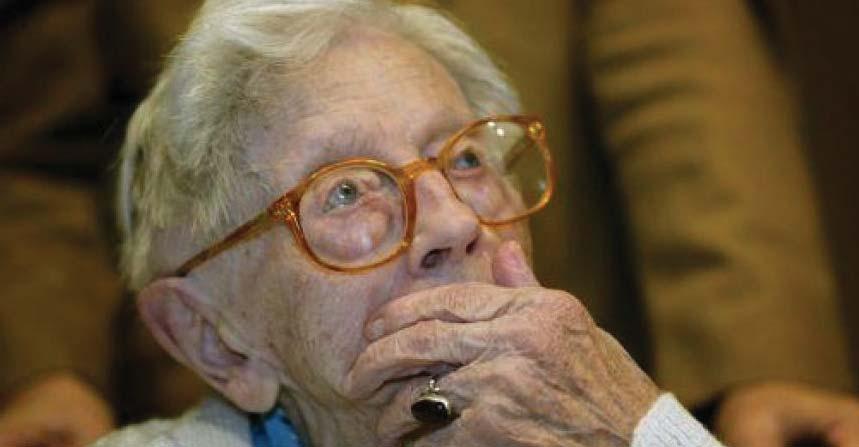
give clues into how and why we age and die.
By looking closely at the white blood cells and studying the pattern of mutation, they could calculate how many stem cells divided and produced them. This study of somatic mutations, mutations that occur after birth that are not genetically passed on, is the first
of its kind in an older, healthy person.
The team found that only two stem cells had produced twothirds of Andel-Schipper’s white blood cells, suggesting that most and nearly all of the blood stem cells had perished and died. The death of stem cells means the body cannot replenish the tissues, and
this finding suggests their ability to divide limits our lifespan.
The absence of harmful somatic mutations that cause disease has Holstege and her team particularly excited, suggesting that the late centenarian had an exceptional repair system that could give clues into treating disease.
Looking deeper at the white
blood cells, Holstege and colleagues also found that the telomeres - important DNA regions of chromosomes that protect the cells from deterioration – were very short. Telomeres shorten during cell division, and the telomeres of Andel-Schippers’ cells were found to be very small, seventeen times shorter than brain cells, which don’t divide like blood.
These findings raise exciting possibilities that an injection of stem cells saved from earlier life could rejuvenate the body and slow the aging process. Holstege said, ‘If I took a sample now and gave it back to myself when I’m older, I would have long telomeres again.’
Beating the ageing process, however, is only a concept and a dream; research has a far way to go before becoming a reality. So, for now, we can only take note of Andel-Schippers’ wisdom in living a happy and extended life. Before her death she said eating herring and drinking orange juice every day was the secret to her longevity, advising also: ‘Don’t smoke or drink too much. And you must remain active.’
David Mason Science Editor
A recent announcement from Cardiff University has detailed a new £34m investment by Edinburgh-based biopharmaceutical company, NuCana, into the development of anti-cancer drugs at the University. NuCana intends to develop its range of anti-cancer medicines on the ProTide platform, developed by Professor Chris McGuigan and his research team, at the Cardiff University School of Pharmacy and Pharmaceutical Sciences. Unlike typical anti-cancer drugs that can be limited in their effect by cell resistance-pathways, ProTides are able to bypass this resistance. The technology represents a remarkable leap forward in the potential for cancer-treatment drugs, and is an important one to pursue further.
Further plans are in place to extend the clinical programme of Acelarin, NuCana’s leading product, via the ProTide platform. Having shown great success thus
This investment is a real vote of application
Professor Chris
far, the drug will be developed specifically for pancreatic, lung, biliary and ovarian cancers. Development and clinical trial of these drugs, as well as further products, is already underway, and it is expected that a second wave of ProTide-based drugs will be scheduled for 2015 under this new investment partnership.
Hugh Griffeth, Co-Founder and CEO of NuCana, said: “We are delighted to be working with Chris McGuigan and the team in Cardiff. Over the years we have had a very constructive and productive collaboration with Cardiff University that is now bringing real benefits to patients.”
The investment itself represents the 14th largest private biotech investment worldwide, as well as the largest ever in the UK. It grants NuCana exclusive worldwide rights to the usage of, and development on, the ProTide platform for anticancer drugs. While any further investment in this vital area of research is excellent news, that Cardiff University is helping in this leap forward is of particular importance.
Professor McGuigan expressed his satisfaction with the developments, stating: “It is very exciting to watch a new medicine emerge, from a theoretical idea, through chemical synthesis in our laboratory here in Cardiff and now as a treatment for patients with cancer.”
“NuCana’s ProTide platform has the potential to deliver patients novel, first-in-class anti-cancer
medicines,” he added. “We are excited to be working with the company’s experienced leadership team in the development programme.
“This investment is a real vote of confidence in our research and its application,” he continued.
“Together this brings real potential for developing new and powerful medicines to treat cancer.”

Robert Barraclough Science Writer
A recent paper, published in Nature Methods casts doubt over the validity of decades of published and peer-reviewed research by suggesting that mice fear men, but not women. The paper has also raised the suggestion that there are further effects caused by the presence of male researchers that do not occur with females. The lead author, Jeffrey Mogil, is a pain researcher at McGill University, Quebec.
The researchers claim to have found that, when studying rats and mice, “male-related stimuli induced a robust physiological stress response that results in stress-induced analgesia”. Using a scale to measure pain responses in rodents, consisting of observable factors such as paw and tail withdrawal, it was found that mice confronted with a male smell, human or otherwise, experienced less pain.
In the presence of a female smell, no such effect was noted. If the pain threshold of an animal is lowered then, during times of stress, it will continue as normal until the pain is overwhelming – an evolutionary trait intended to aid escape by ignoring minor pain. However, the
unnoticed effect of this is often to increase the severity of an injury.
Furthermore, rodents were shown to have increased body temperatures and levels of stress hormones as a response to male scents. It is suggested that this may be due to the territorial, competitive nature of mice, rather than any kind of predatory nature. “If you put a male-worn T-shirt and a femaleworn T-shirt in the same room, the female T-shirt counteracts the effect of a male T-shirt,” Mogil notes, suggesting that only a lone male is problematic. Furthermore, the stress of a male, even alone, becomes less severe over time, suggesting that there may be ways to counter this problem in future.
“Fire all the men – or have them chaperoned by a woman,” Mogil jokingly suggested. He does note, however, that requiring a scientist to sit in a room for almost an hour before collecting data, giving the stress effect chance to completely dissipate from the mice involved, would be “too boring”.
Shanna Hamilton Science Writer
A pioneering gene therapy trial, set to begin soon, could potentially restore natural hearing to deaf people by injecting a harmless virus into the ear.
The research group at the University of Kansas Medical Centre, led by Hinrich Staecker and supported by drug giant Novartis, have studied the complicated structures of the inner ear and believe they have found a way to restore damaged hearing.
“The holy grail is to give people natural hearing back,” said Staecker. “That’s what we hope to do – we are essentially repairing the ear rather than artificially imitating what it does.”
Current treatments for hearing loss include hearing and cochlear implants, but these technologies have limitations and are ‘sticking plasters’, not a cure. Distinguishing music and voices is often difficult, as aids do little more than
I expect to hear me that this sort of explains experimenters each other ‘‘ back
University
of
Kansas

The paper makes important recommendations, strongly suggesting: “standard laboratory practice should account for experimenter sex when investigating any phenomenon possibly affected by stress”. Mogil suggests that “we will have to wait and see” whether researchers intend to return to prior studies to check whether results were tainted. With studies growing larger, it is important to note that researchers who begin the work may not be there at the end, and that researcher roles will often be rotated or switched throughout, obviously without consideration of gender.
amplify sounds, and implants that transform sound waves into electricity miss some of the frequencies that we naturally hear.
There is, however, huge promise for a more permanent fix in this novel gene therapy trial, the first of its kind to treat deafness. By injecting a harmless virus into the ear which carries a gene important for hearing, regrowth of the ear’s sensory receptors is triggered and natural hearing function can be restored.
Sound reaches our brain through some of the most complicated machinery in our body. The eardrum vibrates, transferring to the cochlea in the inner ear via three tiny bones. A part of the cochlea is lined with the all-important sensory receptors, hair cells. Sound waves vibrate these hair cells, which is turn triggers electrical activity that is passed to the brain.
Hair cells of the ear are delicate and can be damaged by loud noise, disease and even certain antibiot-
‘‘ trial is extremely offers hope to the Loss
“I expect to hear stories, to hear people telling me that this sort of explains mysteries about experimenters not replicating each other,” Mogil added.
ics. Staecker and colleagues, back in 2003, studied whether certain genes could transform the structures that support these hair cells. Taking one gene, Atoh1, and inserting it into the harmless adenovirus, they injected it into the cochlea of mice with damaged hair cells and found that the gene stimulates the supporting structures to divide and form new hair cells. Two months later, hearing in the mice had markedly improved. Now the group is looking for volunteers in a human trial after being given the go-ahead by the Federal Drug Administration. By peeling back a person’s eardrum and passing a needle through a tiny hole made by a laser, they hope injection of the gene will improve hearing within weeks.
Ralph Holme, of UK charity Action on Hearing Loss, expressed support, stating: “This is why the planned trial is extremely encouraging and offers hope to the millions affected by hearing loss that a cure is possible.”
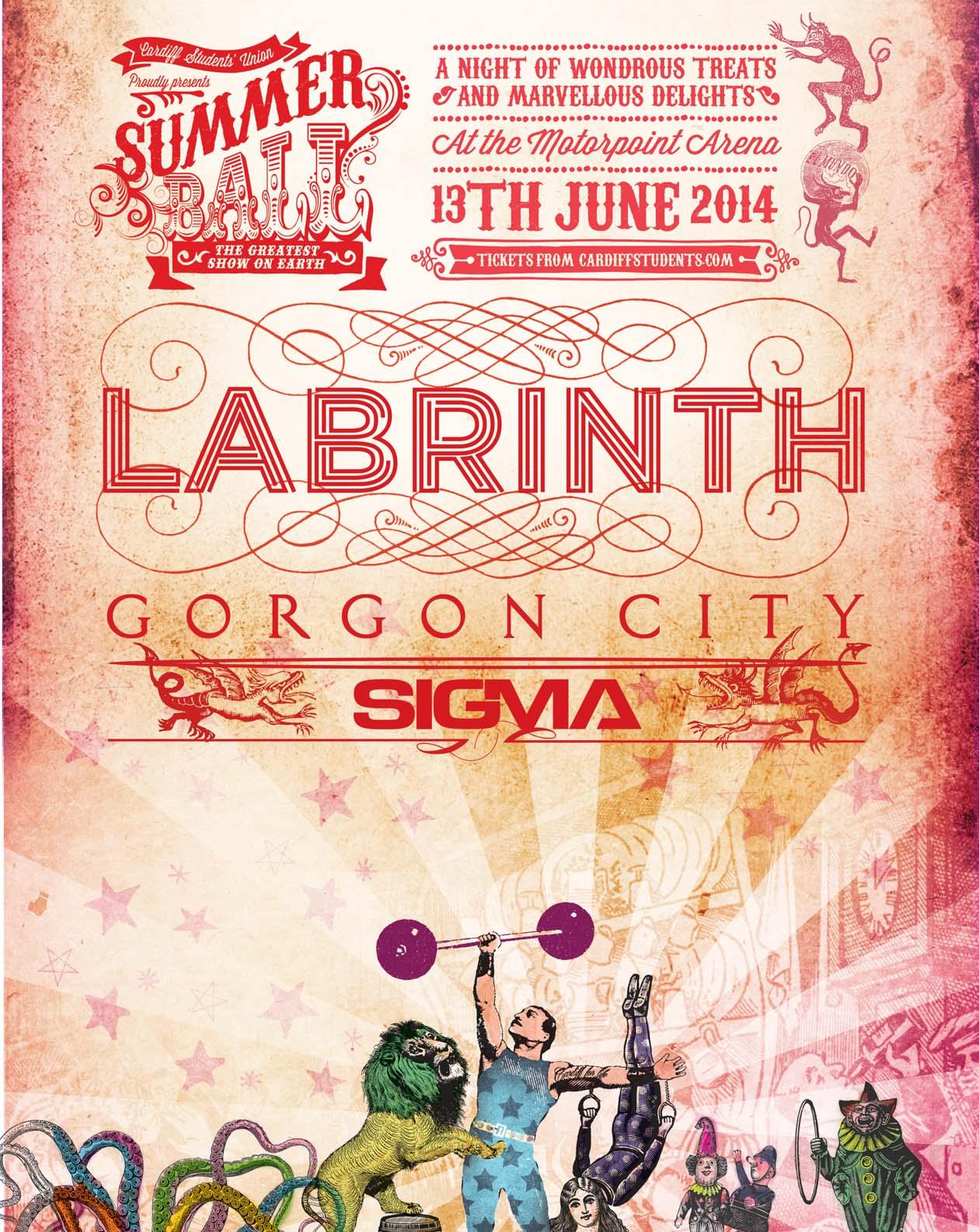



Childs Societies Writer
Cardiff University’s drama society closes the 2013-14 season with the production of Absent Friends, written by Alan Ayckbourn. This one night production will run on Tuesday 6th May at the YMCA theatre in Roath.
This ‘exquisite comedy’ is set purely in a 1970’s Living room, where the group of ‘absent’ friends have planned a tea party in an attempt to cheer up their old friend Colin after his fiancee’s death. However, Colin’s surprising happiness only sheds light on his friend’s complicated and unhappy lives.
This witty production shows that not everything is as it seems
on the surface; with accusations, arguments and enough awkward silences to guarantee a night of laughter and enjoyment.
The production recently enjoyed a successful run on the West End, and Act One are hoping to capitalise on its revival – as well as introduce the Cardiff student audience to Ayckbourn’s writing. Absent Friends uses laughter and comedy to camouflage an acute social observation, which makes for an interesting and enjoyable watch.
Absent Friends was cast just over a month ago; consisting of six undergraduate students, who have rehearsed intensively over the Easter break. Regardless of the upcoming exams and deadlines, every individual has put 100% into rehearsals, which will no doubt be


evident on the night!
The director, Harry Spencer, adds that: “Every single cast member has brought a part of themselves to their role and blown my initial ideas right out of the water, taking the production from strength to strength. I don’t think anyone is looking forward to seeing them on the night more than I!”
Absent Friends will be performed in the YMCA theatre, The Walk, Roath on the 6th May at 6:30pm.
Tickets can be purchased on the door by cash or card, or online at www.cardiffstudents.co.uk/actone.
Keep up to date with the production by following @absentactone.

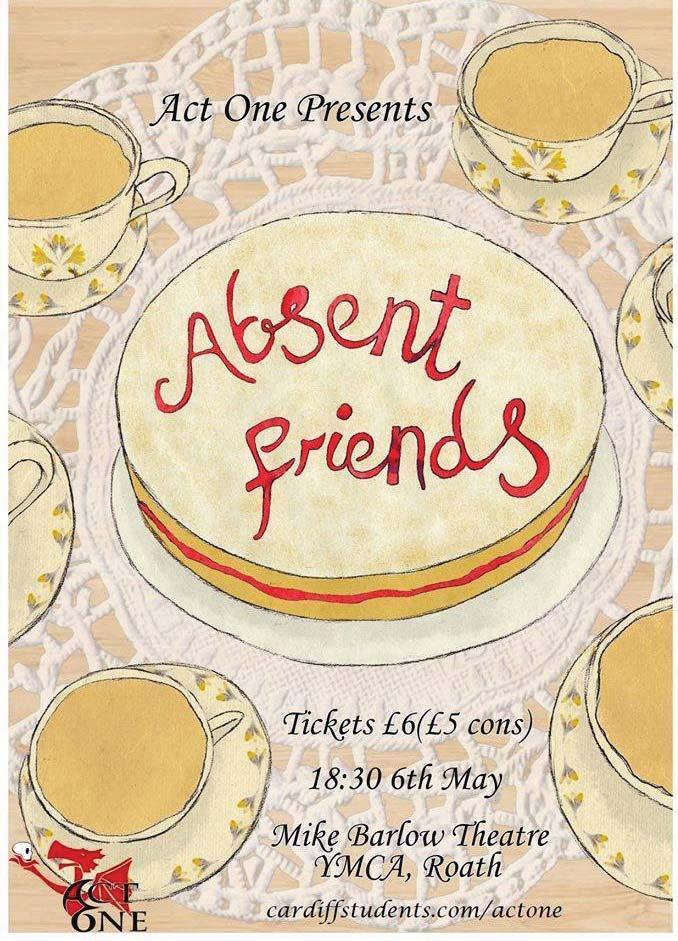






















Croeso nôl!
A chroeso i semester y sgriblo, y stydio a’r H fawr – Hwyr-frydigrwydd! Beth yw’r H fawr meddech chi? Wel, ar ôl hwyr-frydigro trwy’r Geiriadur Mawr yng nghanol yr holl adolygu, y term Cymraeg yn ôl y sôn am Procrasination yw Hwyr-frydigrwydd. Am lond ceg! Posib iawn bod modd sgwennu traethawd cyn hyd yn oed ynganu’r gair! Beth bynnag, tra eich bod chithau’n cymryd rhan ym mhroses yr hwyrfrydigrwydd trwy ddarllen Taf-od, nid syndod bod ymchwil wedi cael ei wneud sy’n cysylltu’r
hwyr-frydigrwydd â gwefannau cymdeithasol Twitter a Facebook. A ninnau’n llygadsgriniau llachar ein gliniadu-ron er mwyn cyflawni’r 2,000 o eiriau, gall y temptasiwn o

Dal i Fynd gan Sioned
William
Mewn un nofel cewch fusnesa yn nyddiaduron
Delyth, y ferch fusnes llewyrchus, sydd a’i phryd ar gael dyrchafiad, ond sydd eto yn ansicr ynddi hi ei hun. Anwen y wraig ty a’i hymdrech i fagu tri o cwyno byth a beunydd. Yn olaf Nia, gwraig cefnogol y ficer, sydd wedi cael digon ar gwyno a gorfrwdfrydedd Eirwen. Gallaf eich sicrhau, byddwch yn morio chwerthin tra’n darllen am helyntion y dair yma.
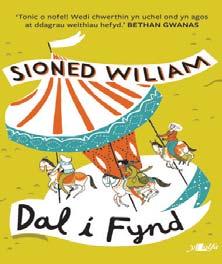
rebu tra’n bwyta pringles ein trechu. Gyda chyfathrebu â ffrindiau a chyfoedion o bob cwr o’r byd mor hawdd trwy fyd snap-chats, facebook a’r i-phone, a hynny oll pan byddwn yn gaeth mewn llyfrgell unig, onid yw’n hawdd dyheu am gael bodoli yn oes yr arth a’r blaidd? Oes papur a phensel, oes sgwennu llythyrau er mwyn cyfathrebu â ffrindiau... ac oes lle nad oes word counts yn bod!
Anna George Golygydd Taf-od
2
Americanah gan Chimamanda Nogozi Adichie
Dyma nofel sy’n dweud stori dda ond sydd hefyd yn siwr o newid y ffordd yr ydych yn edrych ar y byd. Ceir ynddi stori garu Ifemelu a Obinze yn ystod eu cyfnod yn yr ysgol yn Nigeria, cyn i Ifemelu symud i America a Obineze i Loegr. Ochr yn ochr â’r stori garu ceir hefyd effiath troedio tiroedd America a Lloegr ar y cymeriadau, a thrwy hyny mae’r awdures yn llwyddo i drafod ein agweddau ar aml-ddiwylliannau ar draws tri chyfandir. Os ydych yn hoff o nofelau cymdeithasol sy’n trafod perthynas pobl, dyma’r nofel i chi. 3

O ther People’s Countries - A Journey into Memory gan Patrick McGuinness Os yw cyfrolau o farddoniaeth a hunangofiannau at eich dant, dyma’r llyfr perffaith. Mewn cyfrol o ysgrifau byrion sy’n darllen bron fel barddoniaeth, llwydda Patrick McGuinness i rannu ei atgofion plentyndod tra’n tyfu fyny yn Bouillon, pentref bychan yng ngwlad Belg a fu’n ddylanwad mawr arno. Dyma lyfr gwych ’w gael ar y silff lyfrau ac yn sicr ni fydd yn hel llwch. Wrth ddychwelyd ato dro ar ôl tro, gallaf eich sicrhau mai eich dyhead fydd edrych am yr awyren cyntaf i wlad Belg ac ymweld â phentref hynod Bouillon.

4
gan Jerry Hunter Petaech awydd sialens, dyma’r nofel! Mae’r nofel wedi ei lleoli yn y dyfodol, a does neb bron yn y gymdeithas yn gallu ysgrifennu. Yn hynod bwrpasol felly, mae hunangofiant y prif gymeriad wedi ei ysgrifennu mewn orgraff gwbl wahanol i’r hyn yr ydym yn gyfrawydd ag ef. O ganlyniad i’r ograff, llwydda’r awdur i roi cip olwg i’r darllenydd ar y prosesau sydd ynghlwm â dechrau llythrennedd. Dyma nofel wych sy’n disgrifio chwalfa ecolegol a chymdeithasol y dyfodol pell.
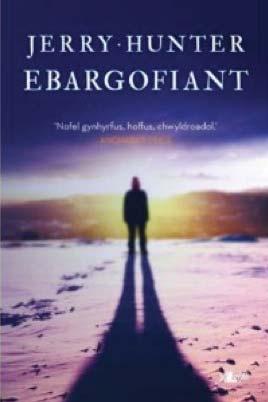
Dan y Wenallt gan T James Jones Rydym i gyd yn gyfarwydd a’r ddrama radio ‘Under Milk Wood’ ond ydych wedi ystyried ei darllen yn Gymraeg? Tu mewn i glawr hardd ‘Dan y Wenallt’ mae T. James Jones wir wedi llwyddo i gyfleu naws barddonol ‘Under Milk Wood’, ac mae arddull yr ysgrifennu am hanes y cymeriadau yn y dref ddychmygol mor hardd a’r clawr. Cyfrol i’w thrysori ar y silff lyfrau.





03/05/14 TEMPERANCE MOVEMENT £11 ADV
06/05/14 THE WONDER YEARS £13.50 ADV
29/05/14 BURY TOMORROW £10 ADV
25/09/14 EVILE £5 ADV
06/10/14 MANCHESTER ORCHESTRA £14 ADV
31/10/14 KIDS IN GLASS HOUSES SOLD OUT
01/11/14 THE REASONING £10 ADV
02/11/14 ASKING ALEXANDRIA £16.50 ADV
08/12/14 AT THE GATES £18 ADV
23/11/14 POP PUNKS NOT DEAD FT. NEW FOUND GLORY... £18.50 ADV
27/11/14 TONIGHT ALIVE £12.50 ADV
08/12/14 AT THE GATES £18 ADV




This summer, we're redeveloping our nightclub, reception and the Taf to make our second floor bigger and better than ever before.
We'll be finished on time for Freshers' 2014, so keep your eyes peeled on our website and social media to keep up with the development. #RedevelopCSU





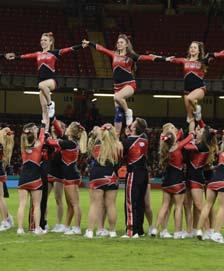

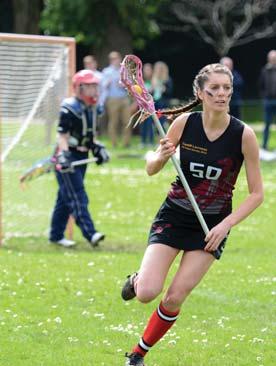

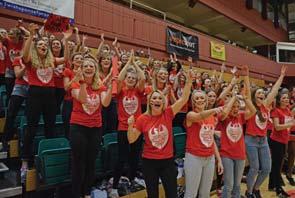
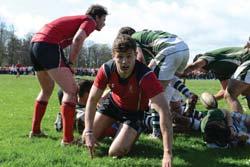

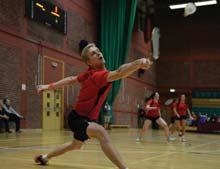
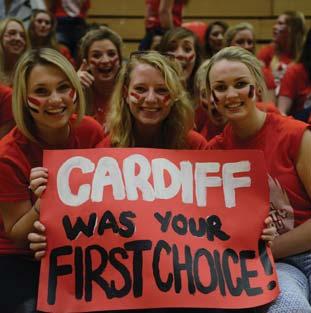

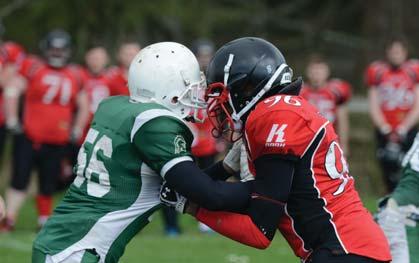

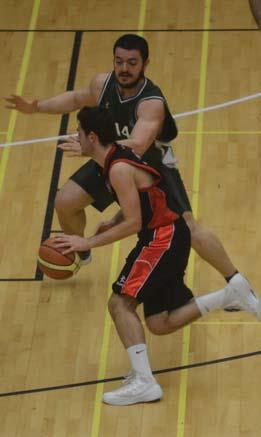
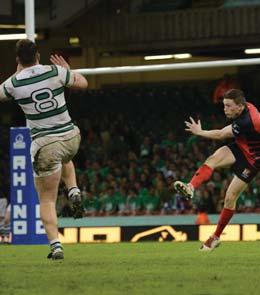










































Rory Benson Sport Editor
Cardiff ladies’ volleyball team were unable to overcome a powerful Swansea side on Varsity day, with the visitors winning by two sets to nil.
The ladies started slowly with Swansea able to ease into a 6-14 lead in the first set, which Cardiff could not match. Swansea went on to hammer home their dominance in the second half of the first set, allowing Cardiff to only score 11 points compared to their 25.
With Swansea taking the first set by such a convincing score, the impetus was on Cardiff to pull the match level in the second and force a tie-break final set.
Cardiff came out firing, taking a 9-6 lead, but Swansea came roaring back into the set. Swansea finally





















put the game to bed after an intense second set in which both sides displayed some good play, with the away side clinching the set 25-19 and with it the match.
Swansea ran out winners after two sets, leaving the third unplayed and insignificant despite Cardiff’s gritty determination throughout the match. Cardiff Men
CARDIFF: P Charalambos, K Nickless, G Mannin, J Werner, A Basakidi, D Leventis, F Bond, M Davies
In the men’s match, Cardiff came from behind to defeat Swansea by two sets to one.
CARDIFF: M Badirwang, R Buiser, C Patrick, D Saev, M Al Korbi, W H Chong, P Bertholet, T Tomita, R Zagorscak, N Economides, R Kench, E Ness, A Dela Grange

















































































































































here's still time to write for gair rhydd before the end of the year. We have three contributor meetings left, where any student can turn up and volunteer to write stories and articles or pitch their own ideas.








The meetings, for the rest of the year, will be held in the Aneurin Bevan
Union from 5pm. If you're fed up with revision and fancy a break, or are free from work, then come along!

e are currently recruiting for some editor positions for next year. If you are interested in helping to choose what we publish, editing stories and designing the paper, then we would love for you to apply.

















Monday 5th May



5pm Anuerin Bevan (Room 4J)



Monday 12th May
5pm Anuerin Bevan (Room 4J)














For over 40 years and well over 1000 issues, gair rhydd has been the eyes, ears and voice of Cardiff









Monday 19th May



5pm Anuerin Bevan (Room 4J)


University students. It's one of the best student papers in the country, and that's down to the incredible effort of all our volunteers. Being involved is undoubtedly one of the best experiences you can have during your time at uni.
























We welcome everyone to be involved, whatever your course, age or experience. For more information, please head to the link below.








CardiffStudentMedia.co.uk/apply












































































































Tim Fulford Sport Writer
On April 2nd, a week before Varsity day, Maindy velodrome provided the perfect location for the first ever Welsh Varsity cycling event. Months of winter training by both teams culminated in some incredibly fast and competitive racing.
The event was a combination of four separate races that would test speed, strength and endurance –the four-rider team pursuit, elimination race, individual kilo and scratch race.
The first race was the team pursuit. Four teams, two from each university, competed over eight laps of the 460-metre track. In some blustery conditions, teamwork would prove essential. Fast times were posted by all four teams, but first blood went to Cardiff, with Cardiff A recording the fastest time, 4 minutes 56.84 seconds, followed by Swansea A in 5:06.37. Swansea failed to provide a wom-
en’s team and there was therefore an exhibition race between two Cardiff women’s teams.
Next up was the elimination race. The format of this race is that the last rider across the line at every two-lap interval is eliminated, culminating in a three-rider sprint for victory. With an extremely tight finish, Cardiff came out on top, with Will Arnold taking the win on the line from Swansea’s Jordan Wade and Cardiff’s Joe Lockett.
The third event was the individual kilo, which consisted of two laps of the track against the clock. This was the scene for the most impressive performance of the day.
Cardiff’s Dan Coleman blew the competition away with a remarkable time of 1:14.61. Cardiff’s Geoff Smart took second with a time of 1:19.66 and Swansea’s Peter Barlow third in 1:20.08.
The final event of the day was a 25-minute scratch race, with all of the riders from the first three events competing. In total, 35 riders took to the track for what proved to be the most intense and exciting event of the day. Despite Cardiff leading the overall standings after
the first three events, it was still all to play for in the scratch race, which had the most points on offer. Cardiff were on the attack from the gun, sending out breakaway riders to test Swansea’s resolve, most notably Henry Matthews, who held off the main field singlehandedly for over five minutes.
Leif Geoghegan tried his luck with three laps to go but the race ended in a spectacular photo finish. Swansea’s Jordan Wade was awarded the victory, with Cardiff’s Joe Lockett and Ben Orrell taking second and third respectively. Winning the scratch race did not prove to be enough for Swansea, as Cardiff were the runaway victors in the inaugural cycling Varsity, winning by a score of 61 points to Swansea’s 29.
CARDIFF: M DiGuisto, H Mathews, B Orrell, B Babcock, T Ferguson, Z Smallbone, T Williams, J Lockett, L Lovell, G Fenn, L Henry, J WilkinsonFilmer, W Arnold, J Fletcher, W Jenkins, J Harper, G Smart, D Colman, L Geoghegan, A Biggs, E Blackwell, L Frazer Cox, R Underhill, J Payne, K Middleton, A Stanford, S Cowley, P Heveron
Tom Bamford Sport Writer
strong base that would be exploited by Zac Turley later in the innings with some late pyrotechnics.
Cardiff University Cricket Club once again proved their dominance over their South Wales rivals Swansea, winning a hard fought Twenty20 match at Usk Cricket Club on Saturday April 5th. Swansea won the toss and inserted Cardiff on a verdant pitch that promised early seam movement. Unfortunately for the Swans, the only movement was the ball sailing over the boundary –in some cases over the road. Wayward bowling set the tone for Swansea, as Joe Collings-Wells began the innings with a mauling of Peake and Smith, scoring 23 off of 8 deliveries. The platform set, impressive knocks from an unfazed Joshua Allen (38), coupled with a dexterous master class from Tom Hamilton (73 not out) provided a
A brief rain-delay after the 17th over wasn’t enough to halt Cardiff’s gathering momentum, as the combination of Turley and Hamilton proved far too strong for Swansea’s bowlers. The 18th over was dismissed for 26 runs. Turley finished with a gargantuan six over the pavilion, as his mother looked on from the stands, with Cardiff finally amassing 177 for 4 wickets. Swansea began their innings in a flurry of boundaries. However, the skilful bowling of Nabel Shaikh and the pace of Rob Wigley quickly arrested their progress. Roared on by a raucous and wholly partisan crowd of Cardiff supporters, the powerful combination of pace from Nick Kent (4 -0-16) and Wigley (41-25) was strongly augmented by nimble seam control from James Aston (4-2-36) and Shaikh (4-2-23). James Godrich’s wicket keeping
played no small part in applying the pressure that resulted in Cardiff’s victory. It also prompted a marvellous take down the leg side that induced an ill-advised streaker and resultantly a Heineken shower from the Swansea faithful.
Swansea’s score of 169 seems somewhat unrepresentative of the closeness of the fixture. Unfortunately Stefan Franklin (4-1-43), having bowled wonderfully up to his penultimate over, lost control of a damp ball and was tucked into by Swansea’s Herring, who finished with a muscular 66.
Despite making the game interesting, Cardiff finished strongly as Nick Kent steamed in to send the home fans into delirium as they completed their second victory in a row over the Swans.
CARDIFF: J Allen, T Hamilton, J Godrich, N kent, R Wigley, N Shaikh, J Collings-Wells, L O’Doherty, Z Turley, S Franklin, J Aston
James Thompson Sport Writer
Cardiff’s men’s squash club went into the Welsh Varsity match-up fairly confident of sealing a win for their University, despite the daunting prospect of playing in front of a predominantly green crowd.
Mani Saundh opened up for Cardiff against Swansea’s Sam Rooks in the first of five matches, each consisting of a ‘best-of-five’ game format. The first game would remain the day’s highest scoring as Saundh managed to edge Rooks 12-10 in a fast-paced start to the competition. Despite seeming like an equal match-up at first, Rooks failed to mirror Saundh’s energy and lost the following games 11-8 and 11-5, handing Cardiff their first win of the day.
Following in his teammate’s footsteps, Cardiff’s Devin Welsh managed to take his first game fairly confidently against a shaky Owen Walters. However, it was during the second game in which Welsh completely embarrassed his rival. Welsh managed to prevent his opponent from scoring a single point, prompting Walters to leave the court in frustration as the final rally was still in play. The match ended 11-6, 11-0, 11-3, and Cardiff established a firm control over the contest.
However, the early celebrations were cut short as the hosts conceded their first game of the day, when a vengeful Johnathan Griffiths won 11-8 against Cardiff’s Rees Herrod, who had perhaps allowed a degree of complacency to creep into his game following the previous two results. Despite making a slow start to the match, Herrod managed to claim the second game 11-6. However, a succession of mistakes allowed Griffiths to retake the lead in the third game, which finished 11-5.
Just as it looked like Swansea were about to finally stake their claim in the tournament, Herrod finally found his form, completely dictating the play and forcing a fa-
tigued Griffiths to desperately dive all over the court with little reward. With the aid of some Cardiff hecklers who began to instantly abuse Griffiths upon arrival, a seemingly fresh and composed Herrod put the day’s longest game to bed, winning the fourth and fifth games 11-6, 11-4 respectively.
Up next was Cardiff’s Adam Doran, who had displayed his fiery character at last year’s Varsity when he clashed with the referee over several controversial decisions. Russ Moralee was his opponent in what was probably the most physical match of this year’s series. The first game looked like it was going Swansea’s way, until a late surge from Doran put him back on top.
From then on, the match was firmly in Doran’s hands and he finished off the last point of the second game with a spectacular backwards between-the-legs shot. Yet Moralee wasn’t going down without a fight, and in a thrilling third game the pair produced the longest rally of the day, which included some remarkable shots off the back wall. Despite an encouraging effort from Moralee, Doran held his nerve, winning the match 11-9, 11-3, and 11-8.
Owing to the continuous Cardiff victories, the previously anticipated final game featuring the team captains of either side had become merely a formality. Nonetheless, Cardiff’s Elliott BrookesParry delivered a squash master class, preventing his counterpart, Jamie Johnson, from gaining any consolation for his despondent teammates.
Johnson showed some resistance in the opening game which was eventually won by Brookes-Parry 11-7, but then the Cardiff captain put the final nail in the coffin, completely shutting out Johnson in the next two games, both finishing 11-3.
The result topped off a day which saw a squad of exceptionally confident Cardiff players completely outplay a tired and dejected Swansea team.










































Arthur Russell Sport Editor
Cardiff Ladies ..……………….125
Swansea
Cardiff
Swansea
Cardiff University took the honours in the Welsh Varsity fencing, winning both the men’s and ladies’ competition in two closely contested set of matches.
After achieving the double over Swansea in the BUCS Western Conference 1A division earlier in the year, Cardiff’s men continued their impressive form against their arch rivals as they ran out eventual winners by 121-114.
The first event of the day – the foil, went Cardiff’s way, with the men taking a 16-point lead going into the sabre. However, a valiant
Swansea clawed back the deficit, taking the sabre 45-31.
With outcome of the men’s competition now resting solely on the épée, it was a vigorous test of both sides’ temperament. However, it was again Cardiff who held their composure to take the épée 45-40 in dramatic fashion.
Cardiff’s ladies continued where the men had left off, narrowly edging out Swansea by 125 to 119. Despite losing both the sabre (45-37) and the épée (45-43), Cardiff’s dominant performance in the foil (4529) meant that the hosts came out on top once the overall scores had been tallied up.
The victory means that the ladies finish a mixed campaign on a high, after a tough season competing against elite opposition such as Oxford University, Cambridge University and University College London in BUCS Premier League South.


































































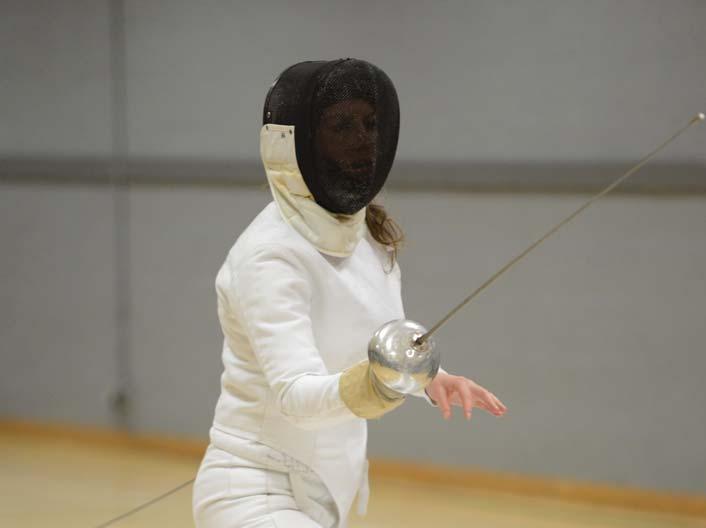
Rory Benson Sport Editor
Cardiff University Badminton Club retained the bragging rights over their South Wales rivals in style after demolishing Swansea in both the men’s and women’s Varsity events.
In the women’s badminton, Cardiff started well, with Hannah Littlecott producing comprehensive wins against Swansea’s Jemima Chectham and Alex Johnson shortly after, but the elation was shortlived as Swansea clawed themselves back into the tie with Ttophi and Miles overcoming Cardiff’s doubles pairing of Chuang and Mahy 10-21 11-21.
Caitlin Gilmour put Cardiff back on track with an impressive 21-6
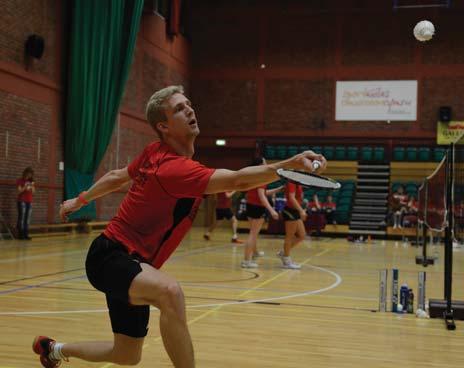
21-3 win over Chectham followed by a resounding 21-0 21-4 win over Swansea’s Johnson.
Gilmour’s second win guaranteed a victory for Cardiff, despite losing the final two doubles matches to two strong Swansea pairs, which made the final score Cardiff 5-3 Swansea.
Although Cardiff’s men won in an even more convincing fashion than the women, the matches were not devoid of drama.
Cardiff started out well in the men’s event, with Nick Ward beating Swansea’s Chris McMullah 21-1 21-12 and Oliver Digby beating David Richardson in a three-game thriller 20-22 21-8 21-14. Wu and Klanczowsk were able to emulate their teammates success when they beat Evans and Yin 21-16 18-21 21-19, but when Bowen and Wai Lim lost to Swansea’s Victor and Ho, Cardiff stumbled.
Swansea’s momentum was quickly upset, however, as a change in venue had to take place in order to allow the netball to continue on schedule due to previous events overrunning.
This allowed Cardiff to catch their breath and steady the ship, and the men ran out worthy winners as they lost only one more match in the process.
Arthur Russell Sport Editor
Cardiff Ladies ..........................3
Swansea Ladies ........................1
Cardiff Ladies produced an impressive performance to win this year’s Welsh Varsity squash, winning three out of four matches in the process.
Swansea established an early lead, winning the first match 18-16 11-4 11-5.
However, a resilient Cardiff bounced back, with Gill Steele leading the way for the home side,
who eventually claimed the second match in a gruelling five sets, 11-12 11-4 11-8 10-12 11-8.
The impressive Anna Johnson made light work of Swansea’s Lily Lai as she cruised to a comfortable straight sets victory, 11-4 11-7 11-4.
Cardiff’s Natalie Machin put the tie to bed in the final match, easily defeating Swansea’s top seed. The win was, once again, in straight sets, 11-3 11-1 11-0.
After celebrating another Varsity victory, the ladies will now look ahead to next season and hope to improve on this year’s midtable finish in the BUCS Western Conference 1A.









































































































Prashanth Veeranki Sport Writer
Cardiff men’s basketball team put up a brilliant display of skill and teamwork to achieve a win over arch rivals Swansea, with a convincing 61-52 score line at the Welsh Institute of Sport.
Although Cardiff have won this clash in recent years, Swansea went into the game in high spirits and with a huge travelling crowd that even silenced Cardiff’s home support.
Cardiff won the tip, but they were unable to score and struggled to find the net. Swansea capitalised on this by taking their scoring opportunities and took the lead after the first quarter, with the score 1613.
The second quarter showed a much better display from Cardiff, with a more organised side while defending. Bringing on James Lewis allowed them to create a full court press on Swansea’s point guard, which led to turnovers and allowed Cardiff to regain a valuable lead.
Towards the end of the second quarter, Swansea were able to regain composure and deal with the full court press. However, by this time Cardiff had already taken the
lead and the first half ended with Cardiff ahead on 29 points to Swansea’s 23.
The third quarter was a heated battle, with neither team backing down. At this point, Cardiff looked to be the ones with the advantage, but Swansea were still threatening. The third quarter ended with Cardiff still ahead by 45 points to 37.
The final quarter began with an impressive performance from Swansea, while Cardiff had some foul trouble, leading Swansea to score points that the hosts could not afford to lose.
With only a few minutes to go, it was neck and neck. However, an outstanding clutch performance from Samuel Bentley and his consecutive three-pointers inspired the rest of the team to push forward and hold on to their advantage until the end.
The game ended with Cardiff winning the men’s basketball Welsh Varsity again, with a final score of 61-52.
Swansea looked dangerous at times, but Cardiff shut them out with some excellent individual performances and an outstanding overall team effort.
CARDIFF: A De Armas Elvira, O Sandys, M O’Keefe, K Esperanzoux, J Foulkes, C Billington, W Nash, S Bently, M Halton-Davies, S Oldershaw, J Lewis, R Smekal
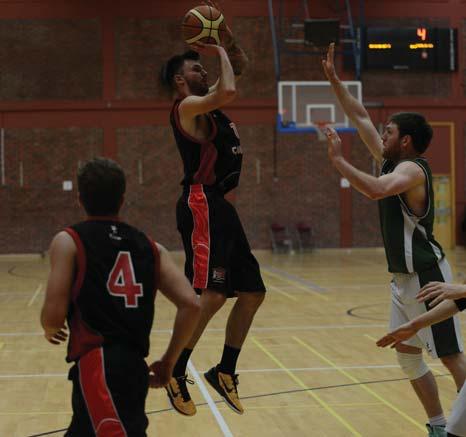
Ross Martinovic Sport Editor
Cardiff’s netballers dominated Swansea as they were victorious in the Welsh Varsity once again.
The home side, who will ply their trade two divisions above Swansea next season after securing promotion to BUCS Premier League South, were strong favourites heading into the match given their higher standing.
And Cardiff justified that tag as a slick performance from start to finish kept their plucky, but ultimately outclassed, opponents at arm’s length.
The hosts stormed out of the blocks and moved the ball around the court at a tremendous pace, with wing-attack Hannah Jones particularly impressive in her link play in the middle of the hall.
Jess Cottrell and Elin Harding were both in fine form in the goal circle as they shared nine goals between them in the first quarter.
Swansea struggled to maintain possession and establish attacking platforms, but they showed a clinical edge when their opportunities arose to only trail 9-5 at the end of the first quarter.
The visitors adopted a less direct approach after the break, which,
initially, paid dividends. The Swans enjoyed a decent spell early in the second period, clawing an early goal back. Cardiff, meanwhile, looked slightly nervous at the other end and several chances went begging.
It proved a mere blip, though, as Steph May’s Cardiff side quickly regained their momentum and reached the halfway stage 19-10 ahead.
The hosts continued their dominance into the third quarter and their new goal-shooter Alix Powell bagged a couple of quick goals to extend her team’s lead even further.
Cardiff looked set to run riot as
they opened up a 15-goal advantage at one stage, but a flurry of goals from Swansea, who upped the tempo in a desperate attempt to salvage a result, kept them just about in touch.
The final quarter was much more evenly contested, but Swansea never saw enough of the ball to truly threaten Cardiff’s advantage as another nine goals from Powell, in addition to one from Cottrell, ensured that the hosts claimed the spoils.
CARDIFF: A Powell, E Harding, J Cottrell, H Jones, E Baldock, S May, K O’Bear, C Bowen, J McKeon, B Sant, E Crowley
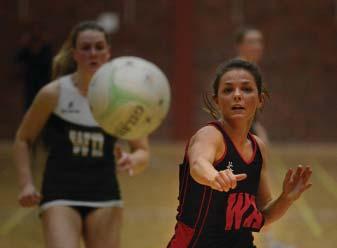
Stew Hume Sport Writer
This year’s Welsh Varsity saw the introduction of the swimming to the events. Last year, a trial competition was held, which Swansea won narrowly. However, this year, Cardiff took revenge and eventually emerged victorious.
The final score after a long and thoroughly entertaining afternoon of swimming ended with the score 127-93 in favour of Cardiff.
Cardiff got off to a great start with the first events of the day, the
medley relays, and never looked back after that. Both the ‘A’ and ‘B’ teams managed to maintain a commanding lead over the visitors throughout the individual events.
In several races, Cardiff were able to claim both first and second positions, with both the ‘A’ and ‘B’ squads outswimming Swansea’s ‘A’ team.
The afternoon finished up with the cannon relay, which, despite some apprehension, Cardiff were also able to dominate as a result of their superior strength in depth.
Men’s captain Jack Thomas was thrilled with the performance and appeared optimistic about Cardiff’s chances, already looking ahead to next year’s event.
“Congratulations to the whole team and thank you to everyone that came to support,” he said. “We look forward to defending our title next year.”
CARDIFF: E Attrill, S Williams, S Elphick, R Oscroft, O Harris, C Campbell, L Herbert, A Mackay, C Price, N Westlake, H Cutherbert, L James, L Roe, C McNicholas, J Thomas, C Bayliss, M Kane-Roberts, R Hill, C WenOoi, K Lowe, S Bolt, E Wilmer, J Taylor, B Cooke, K Thompson, A Chapman, A MacPherson, J Waters, A Brown, B Harris, J Lau, T Riley, E Strang, S Harrison-Baker, J Hatton, I Bowen, J Allen, F Smith, T Hannigan, N Carreras



































































































Editor
Taekwondo was one of the first events of the day, getting underway at 11am in the Welsh Institute of Sport Dojo. Having won numerous titles already this year, including being crowned British Universities champions, Cardiff went into the encounter as strong favourites.
The competition format consisted of 13 patterns match-ups, which involved one player from each team performing a set routine of moves, followed by 15 sparring match-ups. The winner of each match won a point for their team. With 28 points on offer, 15 were required for the overall victory.
In the patterns competition, the Cardiff team had the opportunity to show off their superior technique, winning 12 of the 13 matches. This gave them a strong foundation of points heading into the sparring, where they required only three more wins.
To Swansea’s credit, they immediately raised their game in the sparring, taking the first match and forcing a few draws.
There was plenty of intensity and aggression on show throughout the sparring, with a player from each team eventually being awarded a foul.
The potential dangers of taekwondo were also plain to see, as there were several injury delays. The worst of these came in the 11th
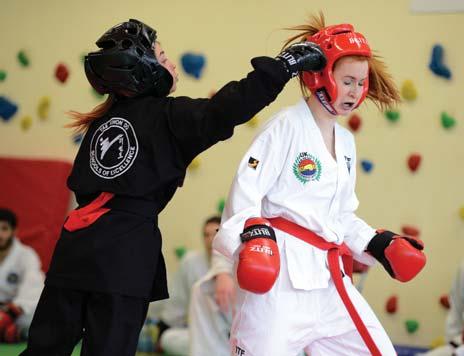
sparring match, which Swansea were forced to forfeit due to a blood injury.
However, after their dominance in the patterns, Cardiff had already sealed the overall victory with Carlos Anziani’s win in the fifth fight.
The Cardiff procession continued after this, with seven more wins and two draws extending the margin of victory even further. Edward Mugabe more than made up for his loss in the patterns as he won the 28th and final match of the day, sealing a final score of 23-5 to the home side.
Team captain Jonathan Beer was suitably pleased with his team’s performance.
He told gair rhydd: “We are yet to lose in Varsity and we have done well all year, but this was probably
our best performance.
“We came up against a good Swansea team but, in the end, we showed that we had better experience and we were the better team.”
Beer was hard pushed to name a standout performer in the Cardiff team, commenting that “everyone performed to their very best.”
However, after an extended discussion, the team came to the communal decision that Ryan Davies’ performance, with his “kick of the tournament”, deserved to be highlighted ahead of some other great individual displays.
CARDIFF: J Beer, B Mac, R Davies, R Morgan, E Mugabe, N Williams, D Parry, S Nethercott, D Kilford, G Schade, B Tanudjojo, A Alaraydh, M Allen, C Anziani, A Sow, D McKay, O Mather









Ross Martinovic Sport Editor
Second-half goals from Josh Walker and Dave Vincent ensured that Cardiff retained the IMG Football bragging rights after a scrappy victory over Swansea.
On a testing playing surface, the football was fragmented and lacked cohesion as both sides struggled to assert authority in possession, especially in a dour first half.
Cardiff emerged much improved after the break and were clinical when their chances came as they won the Welsh Varsity contest for the second successive year.
The first chance fell to Swansea’s Karim Craig Rohbani-Eivazi as he raced clear only to curl the ball straight at James Kelly in the Cardiff goal.
The game was temporarily overshadowed when police moved in to deal with a brawl on the touchline, although it hardly detracted from a turgid affair.
Back on the field, the visitors were edging the possession and territory statistics, but they seldom offered a meaningful threat. Striker Lewys Thomas clipped a shot over the bar before Kelly thwarted his tame effort as the match mercifully drifted into half time.
Cardiff switched to one up front just before the break, and it proved a smart decision as they began to
see more of the ball.
Dan Walsh missed their first clear chance when he headed Alex Davies’ superb left-wing cross over from close-range, but the breakthrough was not far away.
From a corner, imposing leftback Tom Day nodded the ball back into the danger area and found Walker completely unmarked at the far post to tap in from six yards.
The home side, buoyed by the goal, poured forward in search of a second and Swansea goalkeeper Guy Drabble had to be alert to deny Josh Asquith.
While they couldn’t find another way through, the visitors were surprisingly timid as a RohbaniEivazi shot into the side-netting represented their only chance of any note.
Cardiff’s lead, although slender, was more than comfortable as the game entered its closing stages, but Vincent’s last-minute strike made the result certain.
Asquith gathered the ball on the right-hand side and cut in on to his left before driving into the penalty area.
An outstretched Swansea leg felled the midfielder, with the referee duly awarding a penalty that Vincent coolly slid past Drabble’s flailing left hand.
Dave Riley Sport Writer
The Cardiff ladies’ tennis team outclassed their Welsh Varsity opponents from beginning to end as they stormed to a crushing victory at the Cardiff Lawn Tennis Club. Cardiff did not drop a set all afternoon as the number-one seeded
pairing of Sophie Brazell and Becky Squire quickly ran out 6-2 6-3 winners over Chloe Alpine and Becky Hudson.
The second pairing of Eloise Lloyd and Steph Steyn followed that up with an equally comfortable 6-0 6-2 victory over Georgie Collins and Rachel Beary.
Elspeth Griffiths overcame a frustrated Alpine in the first singles rubber, before Brazell, Squire and Lloyd wrapped up their singles matches in quick fashion for a well deserved 6-0 whitewash.
The men’s team were engaged in a more competitive tie on the
neighbouring courts. Like the ladies, Cardiff were 2-0 up after the opening doubles rubbers – a lead that would ultimately prove decisive. Rob Knight and Jamie McKinnon saw off Julian Page and Oli Jackson 6-2 7-6 (7-5), while Danny Hawker and Gary Hawke survived a disastrous second set against Swansea’s Mike Thomas and Jamie Davies to clinch the second rubber on a final set tie-breaker 6-4 1-6 7-6 (7-5).
The first singles rubber between McKinnon and Page was the most hotly contested of the afternoon. McKinnon fought bravely through-
out and kept the second set extremely close, before eventually falling 6-2 7-5 and allowing Swansea to halve the deficit.
In the second singles rubber, Greg Leigh-Jones looked comfortable throughout to run out a 6-3 6-4 winner over Davies and ensure that Cardiff had at least guaranteed themselves a draw.
Looking to clinch the match for the home team, Gary Hawke came up short 6-3 6-4 in one of the more entertaining matches of the day against Jackson in the singles. This left it up to Danny Hawker to seal the victory for Cardiff, which
he did with consummate ease in a 6-0 6-0 victory over Thomas. The Varsity victory tops off a fantastic season for the Cardiff men after their triumph in the Western Conference Cup two weeks ago. The ladies, meanwhie can take solace in an excellent performance following a disappointing exit at the Last 16 stage of the BUCS Trophy.








































































































Alex Miarli Sport Writer
The ladies’ lacrosse game got off to an electric start as Cardiff launched a string of early attacks.
A show of resilience from the Swansea ladies, however, helped to break down a number of these early attacks and created a game that was end-to-end. This was quickly shut out by Cardiff’s Anjuli Seaborne, who outskilled Swansea’s defence to put the home side ahead before the five-minute mark, a goal that established the level of skill of the game.
As expected of the visitors, Swansea did their utmost to hit back, firing countless shots towards goalkeeper Cat Williams. Cardiff were tested in defence as they struggled against the likes of Swansea’s defensive winger Kate Mills, who ran all over Cardiff and got across the pitch to set up a number of chances.
By not being able to convert these chances, however, Swansea were punished again on the counter-attack by Amy Rochford, who set up Flo Barker to extend their lead to 2-0.
As half time approached, Swansea’s efforts did not go unrewarded, as Caitlin Brown caught Cardiff’s defence off-guard and pulled one
back for the visitors from a well executed crease roll to make it 2-1 heading into the break.
With increased intensity in the second half, Swansea continued to hit back with a controversial goal that was contested by Cardiff but eventually stood and Swansea drew level at 2-2.
With the home crowd rallying behind their team, Cardiff’s ladies responded quickly with another goal from Barker. The visitors were clearly stunned by Cardiff’s response and the home side scored another to make it 4-2.
Just when Cardiff thought they were home and dry, Swansea’s Kavita Purohit and Cassie Bell had slotted in two goals in the space of three minutes to level the game again at 4-4. As the ladies battled on, it was evident that both sides had started to waver in the dying stages of the game.
But by getting caught on the counter yet again, Swansea were brutally punished through another goal in the dying minutes by opening scorer Seaborne, who aptly rounded off the scoring to give Cardiff a 5-4 win at the end of a hardfought, high-octane game of Welsh Varsity lacrosse.
CARDIFF: F Baker, A Rochford, N Stageman, E Hearn, A Broughton, E Evans, G Shields, L Gilbert, S Snell, E Burgin, F Parker, G Glennon, C Williams

Dom Booth Sport Writer
Ultimate Frisbee is a sport that little is known about, especially the technicalities and regulations of the game, yet hundreds lined the pitch at Pontcanna Fields on the morning of Varsity day to see Cardiff try and defend their Welsh Varsity title. The crowd were loud and energetic from the start, as Cardiff soared to an early lead. The players describe the game as “like Quidditch” in that there is no set time limit, with the first team to score 15 points declared the winner. A point is scored when a team achieves a successful pass to a teammate in the final zone – a
feat that Cardiff were managing on a regular basis. Swansea barely kept up as Cardiff established leads of 9-5 and latterly 12-7. Cardiff’s team was led by veteran Mike Walters, who produced
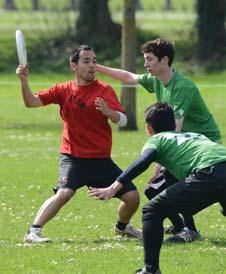
some massive hucks to open up the Swansea defence. Meanwhile, Aiden Ching and Dan Rowland were proving difficult for the beleaguered visitors to get past at the other end, with some incredible layout-Ds to block their opponents’ passes that were leading to scoring catches.
Cardiff kept up the scoring, with most of the points coming from scorers Cam Davidson, James Hall and Derek Neupauer. The game became a procession as Cardiff romped home to a comfortable 15-7 win and once again retained their Varsity crown.
CARDIFF: K Matsumoto, M Walters, B Leung, D Neupauer, J Hall, C Davidson, D Rowland, O Crowther, A Ching, J Gilliland, J Tighe
Eliza Nicholas Sport Writer
This year’s Varsity match against Swansea was a perfect finale to a very successful season for the Cardiff men’s lacrosse team. Following a win from the ladies match, the team warmed up in front of a swarming crowd of rowdy supporters at Pontcanna Fields to begin what would be the last ever match for many of the players.
In the spirit of the day, the game was extremely competitive from the initial face-off, won by Cardiff’s James Tilley. The first goal of the match was scored by a strong Swansea attacking player, with Cardiff’s Joakim Schuwer netting shortly after.
Swansea then proceeded to score two more goals, making the score 3-1 at quarter time, surprising the confident Cardiff team, who had won 7-1 against the same team only a month previously.
The second quarter saw Cardiff return with a vengeance. Schuwer scored twice more, followed by a superb goal by Will Morris, causing spirits to rise and Cardiff to further increase their fervour. James Gibson finished the first half with a skilful goal, resulting in a 5-3 half

time score.
Cardiff became more comfortable as a win looked increasingly likely, giving the attacking players a chance to demonstrate some neat set plays, resulting in yet more efficient goals. Bradley Cooper scored for Cardiff, with Schuwer adding two more.
Swansea refused to lose hope, showing strong attempts at scoring throughout. However, Cardiff’s renowned defensive players proved resolute, ensuring that Swansea’s initial goals were their last.
The fourth quarter saw more goals for Cardiff from Robert Bowen, Ondre Teluch and Charlie Quarry, making the final score 11-3 to Cardiff.
showed strength and
particularly in bringing the
back from the initial 3-1 Swansea advantage. He added that the Varsity win was very important to them in completing their successful season, noting that it was the biggest Varsity win in the club’s history.
CARDIFF: J Ward, J Schuwer, J Gibson, O Teluch, D Bray, W Morris, B Cooper, R Bowen, C Quarry, H King-Oakley, S Fuller, J Tilley, M Cork, M Lane, J Bodnar-Horvath, W JonesWarner, P Chapman, C Blood, J Howe
































































































Cardiff ...................................50
Swansea ...................................7
In what proved to be a hugely entertaining encounter, Cardiff ladies’ rugby team ran in eight tries in an impressive showcase of running rugby, resulting in an utterly dominant victory.
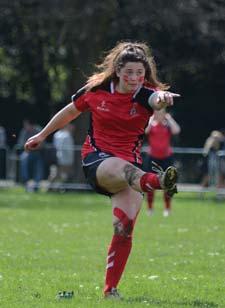
From the very first whistle, the home side looked to be in the ascendency, winning front-foot, and quick ball, which stretched the visitors. After a sustained period of Cardiff pressure, outside half Elinor Snowsil slotted over a penalty from in front of the posts to give the home side a 3-0 lead.
Despite some very good Swansea defending, the impressive Snowsil was the beneficiary of an overlap and dotted the ball down in the corner, and her subsequent conversion put Cardiff 10-0 ahead. After a sustained period of attack, Snowsil produced a delightful dummy on the 22 to run in unopposed, before adding another conversion to give Cardiff a 17-0 lead.
Before the first half was over, the home side showed their clinical edge when winger Emily Houghton crossed in the corner after a lovely move that included both forwards and backs.
The second half began in the same dominant manner, with Cardiff lock Lauren Cooper touching down at the end of a driving lineout for yet another try.
Despite a period of Swansea pressure, the visitors could not cope with Cardiff’s intensity. This was no more evident than when centre Alice Seaton scored a try to put Cardiff 34-0 ahead.
There was more suffering to come for the away side, as Cardiff worked a try from inside their own half that was eventually scored by left winger Laura Waddilove. Jessica Ferguson’s conversion made it 43-0 and Ferguson’s subsequent try and conversion brought up the half-century.
To their credit, Swansea never gave up, and they finally got the try that their efforts deserved after a series of pick-and-goes, with the subsequent conversion meaning that the game finished 50-7 to Cardiff Ladies.
CARDIFF: T Doyle, A White, B Stafford, A Prysor, L Cooper, S Bird, H Cox, J Benton, R Kidnor, E Snowsil, L Waddilove, H Hearle, A Stean, E Houghton, B Taylor, N Harrison, J Ferguson, J Davies, C Francis, R Wilkins, B Boot, A Jack, K Davies








The men’s hockey was expected to produce one of the highlights of this year’s Varsity, featuring two high-quality teams who knew each other very well having competed in the same BUCS division this season.
The game was held late in the afternoon as other matches were drawing to a close, meaning that the large crowds remaining from the ladies’ game continued to grow throughout the match.
The match itself was competitive from the outset, as had been expected, with neither team managing to gain the upper hand in the early stages. The breakthrough came from Swansea halfway through the first half when a defensive error from Cardiff allowed their opponents to take the lead.
Hockey attracted one of the largest crowds of Welsh Varsity day, with each set of supporters out in force. This made for a competitive but exhilarating atmosphere at the Welsh Institute of Sport’s Hockey Astro.
The ladies’ teams got things underway at 2pm and Cardiff dominated proceedings from the outset. Little time was spent in Cardiff’s half and the inevitable breakthrough came after 12 minutes, courtesy of Eliza Brett.
The hosts continued to maintain dominance in both possession and territory after Brett’s goal, with the second goal finally emerging from a goal-line scrap after another 10 minutes had elapsed.
With their 2-0 advantage, Cardiff’s play became even more confident and they managed to sneak in another two goals before the end of the first half.
Facing a 4-0 deficit as the second half began, Swansea managed to recover some composure early in
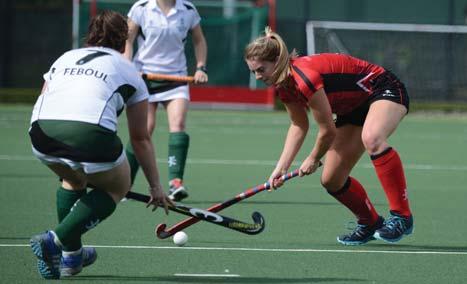
the second half, managing a few consistent periods of possession and denying several more Cardiff chances.
However, after only eight minutes, Cardiff extended their lead again to make it 5-0. After this, Swansea seemed resigned to defeat, as they let in another two Cardiff goals in quick succession.
In the closing stages of the game, Cardiff took the opportunity to showcase their superior stick skills. A Rachel Dunning goal hit the backboard in the 54th minute, while the final goal of the game
came just three minutes later as the home side ran riot.
With Cardiff already assured of victory, Swansea enjoyed their best period of play in the dying minutes of the game, but they were still unable to affect the score line, which stood at 9-0 to Cardiff when the final whistle blew.
CARDIFF: R Evans, J Tilbury, R Allen, A Hayes, J Greaves, R Dunning, L Linley-Adams, L Abott, C Macaulay, E Brett, N James, J Buhagiar, E Jones, S Davies, R Harper
Neither team managed to capitalise upon their numerous short corners, but the biggest missed opportunity of the day came when a Swansea player went one-on-one with the Cardiff goalkeeper only to butcher the finish.
The final minutes of the first half were characterised by umpire involvement when Cardiff’s
would-be equaliser was disallowed and Robert Williams received a green card. The score remained at 1-0 as the half-time whistle blew. Both teams raised their intensity as the second half began, with Cardiff – and particularly Rupert Shipperley – showing great stick skill up front. Both teams created numerous chances, but were denied by tight defensive organisation at either end of the pitch. Another error allowed Swansea to double their advantage after 48 minutes of play. Following this, Cardiff continued to push forwards and create chances, with most of the last 15 minutes of the game being played in the Swansea half. Cardiff produced their best chance of the match in this period, with a goal denied only by a magnificent save from the Swansea goalkeeper. The final score line, although tight, did not fully reflect the competitiveness of the match. Cardiff will have been disappointed not to have capitalised upon any of their chances and to have been let down only by two small errors.
A Hughes, D Lawson, J Carr, W Teagle, R Williams, D Cooke, A
J
A
S
R
R








































































































Greg Landon Sport Writer
The Swansea Titans shut out the Cardiff Cobras to comfortably win the American football leg of the Welsh Varsity by a score of 27-0.
The visitors were certainly the pre-game favourites, having easily won last year’s Varsity matchup 3614, and also having not lost a BUCS league fixture since December 1st. It quickly became clear that Swansea had every intention of continuing this good form.
On the first drive of the game, the Titans moved the chains primarily through fresher running back Jacob Ahmadi, but were also aided by Cardiff’s defence straying offside on a crucial third down. Quarterback Simon George then threw a simple hitch route in the Cardiff redzone, which was turned into a touchdown thanks to poor tackling from the hosts. Thankfully for Cardiff, this resulted in the first of four failed two-point conversion attempts.
If the Titans’ first drive was a sign of things to come, so was the Cobras’. They ran the ball on two consecutive plays – a tactic that they would continuously employ despite being behind – before the visiting defence forced and recovered a fumble on another run. Swansea’s offence stalled on the resulting possession, but good field position from the fumble allowed them to kick a field goal, extending their lead to 9-0.
Jacob Dirnhuber Sport Writer
wins would be the overall champion.
The Welsh Varsity sailing took place at Cardiff Yacht Club, where both teams were met with favourable sailing conditions down at Cardiff Bay.
After the break, things only got worse for the hosts, whose defence simply could not get off the field. On a fourth and eight in the third quarter, George tossed a beautiful throw to the back of the end zone, bringing yet another touchdown and missed extra point.
The fourth quarter saw Cardiff’s best offensive series with strong carrying from back Ayo Akintunde, but a dropped catch on fourth down summed up their afternoon. On the very next play, Swansea’s Jacob Ahmadi broke off a 52-yard touchdown run, only to be called back for holding by his linemen.
The visitors would score later on the drive, however, to round off a 27-0 victory. The heavy defeat has left the Cobras with much to ponder ahead of next season.
CARDIFF: S Cook, C Brinkworth, A Akintunde, R Romo, T Osbourne, S Jolliffe, J Whiteman, R Patterson, J Saffer, D Reeves, R Jones, M Mackean, I Reynolds, S Pollitt, D Stewart, C Birch, W Harris, A Dunkley, A Rogers, B Crimp, B Mason, A Roberts, J Baysting, S Gill, E Evuarherhe, S Cook, W Harris, T Lock, J Roberts, P Brockway, W Walker, R Ford, E Woolcott, A Clifford, S Rees, A Patterson, A Fitzpatrick
Cardiff’s quarterback Chris Brinkworth endured a tough afternoon, rarely throwing and being consistently pressured when he did. His second-quarter interception was the only pick of the day from either side and it was completely at odds with his counterpart, who extended Swansea’s lead to 15-0 before halftime with a clever slant route on fourth and four from the 10-yard line.

The race was originally scheduled to start at 10:00am, but a series of technical faults and late arrivals meant that many of the boats didn’t even get into position until midday.
The race line-up was made up of six boats sailing simultaneously, and the winner was decided by adding together the finishing places of a team’s three boats – whichever team scored ten or below would win the race, and with only nine races, the first team to reach five
After a brief pause in order to fix the broken tiller of Swansea’s boat three, the teams set sail. Despite being shown a red flag, Cardiff won the first race with nine points, which came from their boats finishing first, second and sixth. They doubled their advantage soon after with a final score of eight to Swansea’s 13.
Swansea clawed back some ground in the second race with second, third and fifth place finishes respectively, and drew level with a score of ten, which came through first, fourth and fifth place finishes. Despite the setback, Cardiff won the next two races with nine and ten point finishes, which brought the overall score to 4-2 and meant that Swansea had no room for error – another win would give Cardiff an unassailable lead.
Another red flag for Cardiff gave Swansea hope as their boats finished first, second and fifth in race seven, but Cardiff were not to be denied, and sealed the win in race eight with a set of second, third and fourth place finishes.
With no possibility of either a Cardiff clean sweep or a Swansea comeback, and having already been told to move by a Cardiff Bay patrol boat, the teams decided not to race for a ninth time.
“Credit to Swansea, it was the closest Varsity race I’ve ever been involved in,” confessed Cardiff captain Henry McLaughlin.
“It really could have gone either way at the end and I’m just glad we managed to do edge out the overall victory.”
James Ayles Sport Writer
As old rivals reacquainted themselves in the key battlegrounds at the Welsh Institute of Sport, one of the day’s most engrossing conflicts took place several miles away in Cardiff Bay – the canoe polo.
Canoe polo is a rapidly expanding sport in the UK, with Britain the current world champions. Played out between teams of five players in two 10-minute halves, the sport is noted for its ferocity and skill level.
First up in the three-match series to decide the Welsh Varsity winners were the men’s ‘B’ teams, who produced an error-strewn but engaging opening contest. Despite a flood of early chances for Cardiff that led to them opening the scoring, Swansea gradually turned the tide and established a 2-1 lead by the end of the first half.
Continuous Swansea pressure throughout the second half led to a decisive third goal and, despite carving out a few chances in the closing moments, Cardiff eventually lost 3-1.
Following on from that early setback, Cardiff men’s ‘A’ team wasted no time in attacking their rivals with startling ferocity. Club captain Chris Corkill led by example

throughout and was instrumental as Cardiff sailed into an early 2-0 lead. Cardiff’s superior canoe handling was obvious and they soon found a third goal.
A flowing Swansea move led to their first goal of the match, but Cardiff continued to stretch their lead to 6-1. This could have been increased further but for some haphazard shooting. In the throes of the match, as Swansea searched in vain for another goal, Cardiff stole the ball and streamed upfield for Corkill to tuck away a deserved seventh to seal the final score at 7-1.
And so, with the series tied precariously at 1-1, it was down to the ladies. Determined to outshine their male counterparts with some
incisive early play, Cardiff were too fast across the water for Swansea and duly opened up a 2-0 lead by half time.
Following the interval, Swansea never came close to matching the intensity and accuracy of their opponents. Cardiff bagged three more goals as the match meandered towards an inevitable 5-0 victory for the hosts. This result saw Cardiff clinch the inaugural Welsh Varsity 2-1.








































































































Arthur Russell Sport Editor
fully driven header from Frances Dalton, which deflected into the back of the net.
The ladies’ football 1st XI came through a tough Swansea test, in the end comfortably winning by two goals to nil to reclaim the Welsh Varsity bragging rights after their defeat in 2013.
Both sides struggled to find any rhythm early on, with the first half a stop-start affair. However, it was a more physical Swansea side who eventually settled first in possession and looked the more threatening, particularly from set-pieces.
With half time approaching and against the run of play, Cardiff’s Abi Smyth had the first clear-cut chance, firing straight at the goalkeeper from close range. From here on, the pendulum continued to swing in favour of the home side.
Spurred on by a motivational half-time team talk from coach Mark Brown, it was an increasingly confident Cardiff who opened the scoring. A brilliant outswinging cross from captain Laura Brathwaite was met by a power-
With the home side creating more and more clear-cut chances, it looked as though the match would only go one way. It was not long before a neat through-ball from midfielder Jess Ham was latched onto by the impressive Smyth, who calmly slotted home to double Cardiff’s lead.
Following the goal, a controlling Cardiff looked to close the game out, with substitutes Izzy Barlow and club captain Ellie Davies providing not only fresh legs, but also an immediate impact.
As the play began to break up more freely in the latter stages, a spirited Swansea kept on searching for a way back into the match.
It may well have been a different last ten minutes for Cardiff if Swansea had not squandered a chance from a controversial late penalty.
Cardiff eventually ran out worthy winners. A proud Brown confessed: “It was a bit disappointing not to get promotion, but I will take a Varsity win over promotion. To win and keep a clean sheet against

a decent Swansea team – we’re all over the moon.”
Captain Brathwaite echoed Brown’s delight: “We have been working on a lot of new stuff over the course the season and I feel like today it all came together for us.
“It was a well deserved result, with everyone putting in 110 per cent.”
In this season’s BUCS Western Conference 2B Division, Cardiff could only muster a third-placed finish, 10 points behind promoted UWE and only three points above their arch rivals Swansea, who finished fifth out of six teams.
The result means that Brathwaite’s
a positive note.
Swansea goalkeeper Luke Martin.
Joe Atkinson Sport Writer
Cardiff’s men suffered an injurytime defeat to their Swansea rivals, who secured their first Welsh Varsity victory since 2010.
Swansea’s Jordan Smith bundled the ball into the back of the Cardiff net in the seventh minute of second-half stoppage time to break Cardiff hearts.
For the most part, the game was evenly fought, with little between the teams. Swansea broke the deadlock in the 25th minute, captain George Parsons rising highest to get on the end of a corner and float a header in off the underside of the crossbar.
Five minutes later, Cardiff were awarded a penalty when a Swansea defender was adjudged to have handled the ball. Captain Nick Feely, scorer of two goals in last year’s Varsity triumph, stepped up but saw his effort brilliantly saved by
The second half saw Cardiff struggle to break the Swansea defence. However, another penalty was awarded to Cardiff in the 80th minute, as Martin missed the ball
and caught Feely when going to claim a long ball. Martin was injured in the process, causing a long delay in proceedings. Substitute goalkeeper Ryan Roberts was called upon and made a fantastic

save to deny Feely once again, but the Cardiff captain managed to claim the rebound and equalise. Cardiff’s tails were up and the home crowd sensed a swing in momentum, but deep into added time, Smith managed to turn the ball home in a crowded penalty area from Guillem Bauzà’s cross. Bauzà formerly played for Swansea City and Spain Under-19s professionally and now studies medicine at Swansea University, while also playing part-time for Port Talbot Town.
On the balance of play, Swansea arguably just about deserved the victory, but Cardiff put in a good effort and on another day could easily have claimed the victory. They hit the bar twice in the opening 20 minutes, one a shot from outside the area and the other a towering Feely header.
N Lewis, R Wilkinson, J Wotton, W Neild, D Compton, J Lane, J Dorwood, J McEvoy, S Chester, C Hugh, F Drummond, W Lygo, N Feely
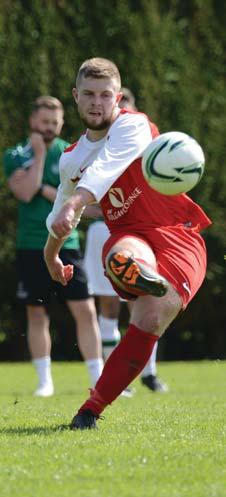










































Steffan Thomas Rugby Club Correspondent
The main event of a jam-packed day represented the biggest day in the calendar for both Cardiff and Swansea. On the 18th occasion this match has been played, a crowd of 13,835 turned up to cheer their respective universities on. Since its inception in 1997, the Welsh Varsity has come to represent far more than rugby or even sport in general. The Universities’ flagship sporting event unites students of all academic courses together, regardless of whether they are rugby fans or not, in support of their university.
Man of the match Nicky Thomas, who represented Wales Under20s in the final of last season’s Junior World Championship, summed the occasion up when he said: “This is the highlight of my calendar if I am perfectly honest.
“It’s something that you remember and you just love the atmosphere,” said the promising tighthead prop.
Ultimately, it was the 120kg Ospreys powerhouse who was the major difference in what was, on the whole, a forward-dominated affair.
Thomas was the most influential player on the paddock as he went about annihilating Cardiff’s scrum almost single-handedly.
This clash may have been built up to be an epic, but, in truth, it was an extremely nervy and errorstrewn affair.





















































Both sides seemed to take the field with a mentality of minimising mistakes rather than going all-out to win. It was always going to be the team that held its nerve in key moments of the game that would emerge victorious.
Despite Swansea fielding the stronger squad on paper, it was Cardiff that started the brighter with their superb captain James Thomas winning a penalty at the breakdown in the first minute. From the subsequent lineout, Thomas made a scything break into Swansea’s 22 and Cardiff were awarded a penalty that Jack Neville slotted for the first points.
Former hooker Arthur Ellis, whom Cardiff director of rugby Martyn Fowler selected in the centre to neutralise the threat of his fellow Ospreys starlet Matthew Jenkins, was a constant thorn in Swansea’s side.
Ellis more often than not comfortably beat his first defender and his classy offloading game ensured that Swansea were put under pressure early on.
Unfortunately for Cardiff, the first scrum of the match set the tone for the rest of the encounter, with Nicky Thomas dismantling his opposite number Tom Boot to earn his side’s first penalty.
Wales Sevens man Will Thomas failed with the attempt at goal, but the precedent had been set.
The visitors began to win the collisions in the first quarter of the match, but some outstanding Cardiff defence, epitomised by a terrific performance from James Thomas at the breakdown, kept Swansea at bay.

Going into the second quarter of the match, Cardiff still led by three points to nil, but Swansea started to wear the home side down with a series of scrums close to the hosts’ try line.
The pendulum swung emphatically towards Swansea on 26 minutes when Cardiff tighthead prop Aled Rees was given ten minutes in the sin bin for illegally collapsing one such scrum.
Replacement front-rower Mor-
gan Bozanko replaced winger James Brock to ensure that the floundering Cardiff pack retained their full complement of players, but it made little difference as referee Neil Hennessy swiftly awarded a penalty try. Outside half Will Thomas added the extra two points to give the visitors a 7-3 lead on the half-hour mark.
The adversity seemed to spark the home side into life as they found some decent field position
at last.
From the top of the lineout, Ellis steamrollered Will Thomas and unleashed a delightful offload out of the back door.
The ball found its way into the arms of Neville, who followed it up with an outstanding floated pass to put Tom O’Flaherty in for a try in the corner.
Neville missed the touchline conversion, but Cardiff were back in the lead at 8-7.
Lauren Davies Sport Writer
Swansea showed their desire early on in the freshers’ rugby Welsh Varsity game at Pontcanna by starting very strongly.
After only nine minutes had been played, the pressure paid off as Swansea were awarded a penalty due to Cardiff using their hands in the ruck. Sam Guttridge’s first effort of the game was then successful to make the early score 3-0.
With points on the board, Swansea were quick to haul themselves back inside Cardiff’s 22 and the hosts soon gave away another penalty for failing to release the ball. This allowed centre Guttridge to score again and double Swansea’s advantage to 6-0. As the visitors kicked off, Cardiff quickly charged the kick, which led to a try for Cardiff hooker Harry Freeman. Captain Lewis Molloy successfully converted for another two points, giving Cardiff the lead with the score at 7-6.
However, Cardiff’s lead did not last long as they gave away a succession of penalties, providing
Swansea field position to attack in Cardiff’s half.
On 31 minutes, Swansea chipped the ball ahead and the tension rose once more. They regained the kick but the ball ran dead as Cardiff’s Nathan Blakey put a big hit into the Swansea number 15, James Phillips.
After a scuffle, Swansea turned the ball over in the scrum. Their domination allowed them to drive Cardiff back into their own half, and fly half Ben Brackenridge scored Swansea’s first try to give them the lead. A successful conversion by Guttridge followed, taking the score to 13-7.
Three minutes later, Swansea forced Cardiff into their own half once more, and Phillips crossed the line to score a try. With Guttridge finally missing a kick, the score remained at 18-7.
At the start of the second half, both teams showed determination to put points on the board. However, Cardiff infringed twice more, allowing Swansea to extend their lead to 24-7.
Swansea continued to dominate, particularly in the scrum, as Cardiff were nowhere to be seen in the second half.
Number eight Dave Jones was Cardiff’s standout player, perform-
ing well throughout the game and providing his team with a determined, strong ball carrier as he consistently broke the gain line and set a platform for Cardiff to build their attacks.
CARDIFF: N Hildebrand, H Freeman, B Holiday, M Baker, J Kenny, A McDonald, S Kettle, D Jones, E McCrorie, L Molloy, H Thorpe, B White, G Heath, N Blakey, C Drummond
REPS: J Bonessera-White, D Fellows, C Maclaurin, E Boothnight, C Wyman, A Knights, C Rees, E Williams, H Salisbury, B Haplin



















































































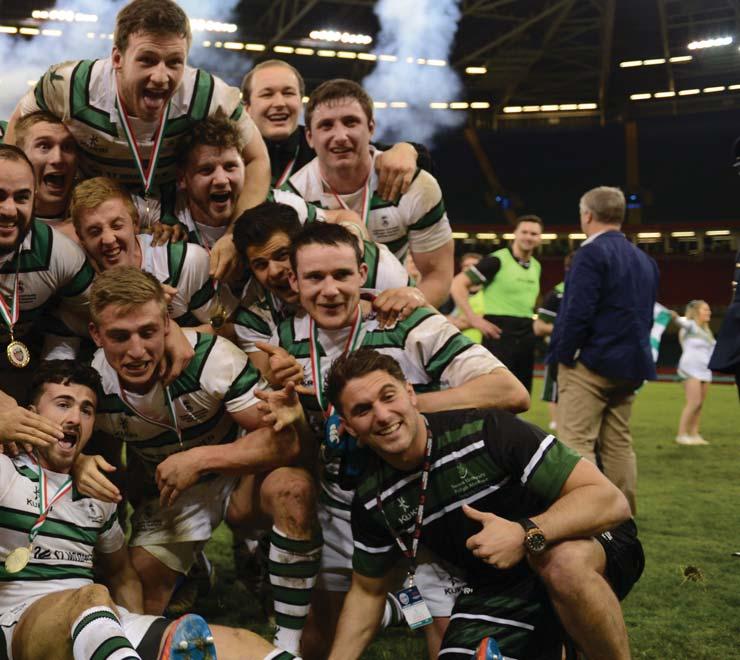
The sight of Rees returning to the field boosted James Thomas’ troops further and put immense pressure on what seemed to be a shell-shocked Swansea side.
In the dying moments of the half, Thomas broke through three tackles and got a tricky offload away to Iwan Phillips, who was bundled into touch in the last act before the break.
The second half began with Cardiff penalised in a useful position

for holding on to the ball on the floor.
Will Thomas then duly drilled the ball down into Cardiff’s 22 with a monster kick to touch.
From the ensuing lineout there was only one tactic Swansea were going to employ, with openside flanker Jack Perkins the beneficiary of a powerful catchand-drive to earn his team their second try of the evening. The conversion was missed, but Swansea
Hello, hello! Welcome back to the final term of the year.
I know all of you will have exams to get ready for, as well as dissertations and theses to hand in. I do not envy any of you spending your days and nights revising for what seems like an endless few weeks, but keep going and persevere! It will all be worth it when you finish and you know you’ve got the marks you deserved.
In the meantime, to keep your spirits high, let’s have a look back at what was the biggest Welsh Varsity event we’ve ever had.
This year’s Varsity saw us win a staggering 24 out of 31 events – the
had regained the lead with a score line of 12-8 on 45 minutes.
Twelve minutes later, Ellis smashed over the gain line once again, before Neville threaded a neat ball through the onrushing defence. Unfortunately, O’Flaherty couldn’t capitalise and knocked on with the try line at his mercy.
Predictably, the visitors won a penalty from the scrum that followed, with Will Thomas gaining
most events Cardiff has ever won. That could only happen with the immense time and effort our clubs put into training for Varsity. For many clubs, there is a four or fiveweek gap between their last fixture of the season and Varsity, so it is a great compliment to them that they can keep up the intensity for those weeks and still be able to play at such a high standard at Varsity.
Special mention must be made to our newest Varsity sports –swimming and canoe polo – as well as the boxing event.
These new events saw Cardiff absolutely smash Swansea and they were held in good spirits. It’s fantastic to see that these events have added great value to the Welsh Varsity and I look forward to them






the away side crucial field position, and it was from here that the Swans grabbed the crucial score.
From a Cardiff point of view, it was far too easy for them. Swansea threw to Jenkins storming up at the back of the lineout. O’Flaherty missed a straightforward tackle on the imposing centre, allowing the 20-year-old to run in unopposed for a seven-pointer.
Despite staring into the abyss at 19 points to eight down, Fowler’s men refused to submit.
On the hour, Cardiff scrum half John Preddy took a quick penalty, which was passed through Cardiff hands before deflecting into the path of O’Flaherty, who dived over under the posts.
Referee Hennessy consulted the television match official, and awarded the try that, along with the simple conversion, brought Cardiff right back into contention at 15-19.
Cardiff would have hoped to gain more territory after this try, but it wasn’t to be. The visitors had learned their lesson and kept the ball tucked up their jumpers to nullify Cardiff’s backs.
As the clock ticked down, Swansea turned the screw and camped on the home side’s try line with a series of five-metre scrums.

A second penalty try looked inevitable, but Hennessy remarkably awarded Cardiff a penalty from the scrum, which gave Cardiff a lifeline in this encounter.








opted to go for goal from the halfway line and Bryn Phillips’ effort was well off-target.
Still Cardiff came back at Swansea as Ellis yet again broke the line and put in a neat pass to Iwan Phillips, but the fullback couldn’t get past his man and was ushered into touch as Hennessy called time on a full-blooded contest.
It was a valiant effort from an unfancied Cardiff outfit, whose never-say-die attitude very nearly brought them a famous victory.
Unfortunately, the visitors had too much firepower up front as their dominant set piece proving the difference.
Fowler, coaching the University for the final time, was quick to praise the commitment of his players.
“On paper, the general perception was that Swansea were 40 points stronger than us, given their Under-20 internationals and experience,” he said.
“Only six players from our side had ever played in a Varsity match before.
“They couldn’t have done anymore and the difference was ultimately one individual error for the try.

“Everything we worked on worked, particularly in terms of our defensive systems. “I could not have been prouder of that group of young men even if they had won.”




The home team battled desperately to salvage a result and earned a penalty with five minutes to go. The sensible option seemed to be to launch the ball deep into Swansea’s 22 to give themselves a chance at winning the game, but Cardiff strangely
taking place in future years as well.
Similarly, the boxing Varsity was also a major success, taking place in Oceana Swansea. Unfortunately, this didn’t result in a Cardiff victory, but I’m assured that in future years to come we’ll have the edge against Swansea and achieve revenge.
Overall, the Welsh Varsity was a massive success, not only with us winning as many events as we did, but also the massive number of people taking part, whom I would like to thank for their efforts.
Representing your University at Varsity is one of the biggest honours a student can receive, so all of you should be immensely proud. Secondly, I’d like to thank all the members of staff who helped make




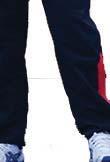



the day run as smoothly as it did, from those in the WIS reception to those out on Pontcanna Fields. The most important thanks of all must go to all the students who watched the events! Without the student supporters, Varsity wouldn’t be what it is now, so thank you all.
Finally, a funny fact to leave you all with – on Varsity day, over 15,000 plastic cups were distributed to spectators for all of the drinks that were bought, so fair play to all of the people who turned up and got into the spirit of things to contribute to that number!
EDORE EVUARHERHE Athletic Union President @AUPresidentCSU
